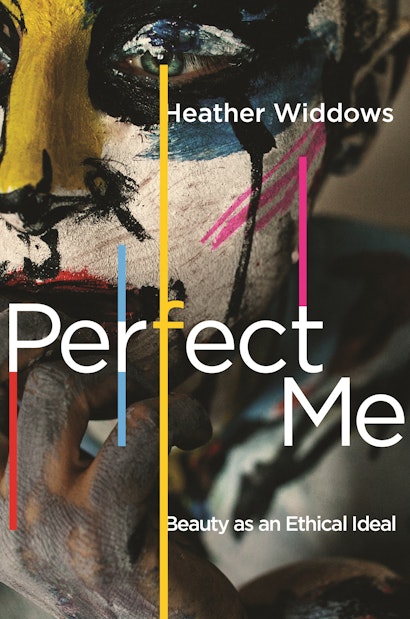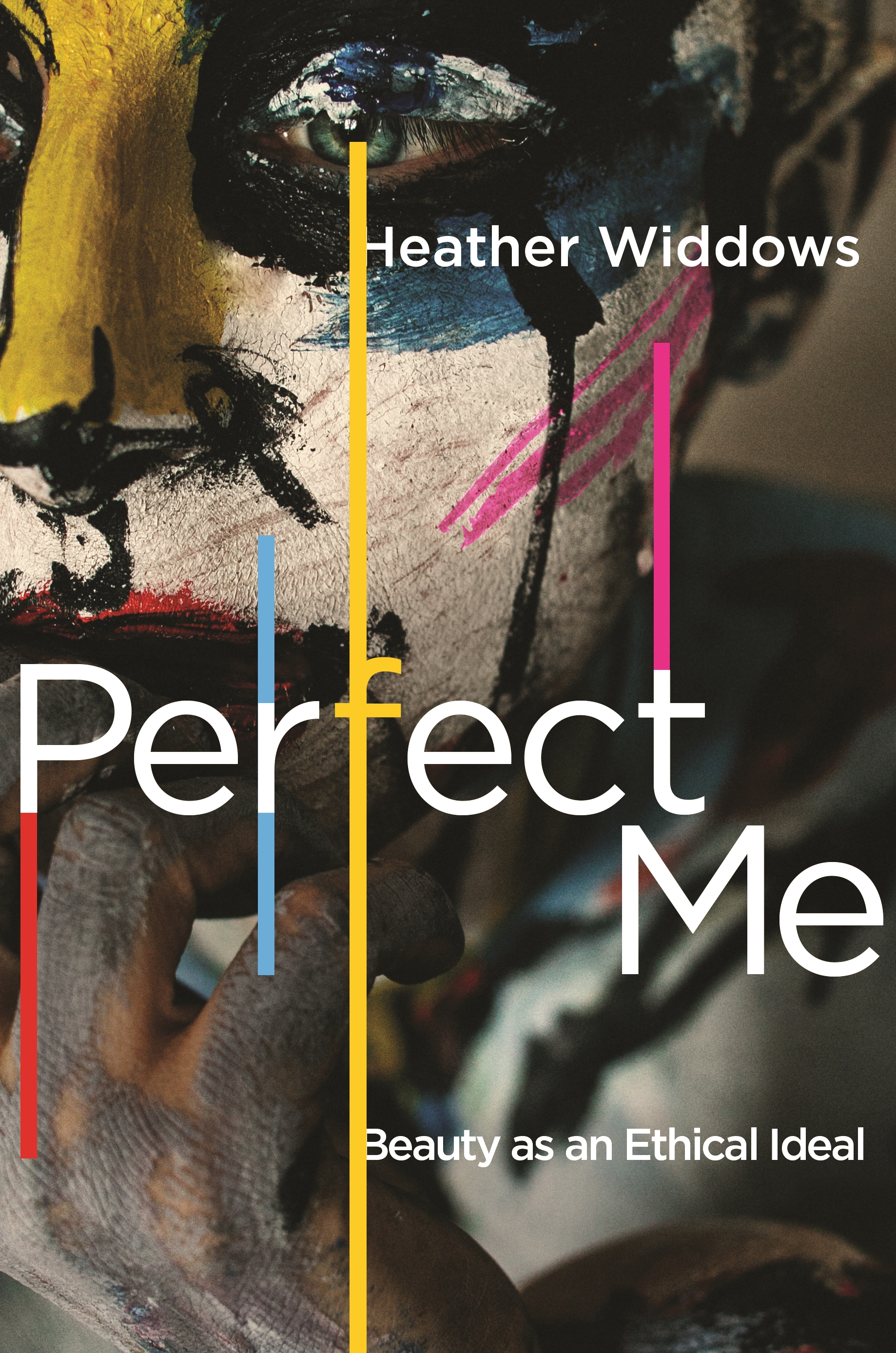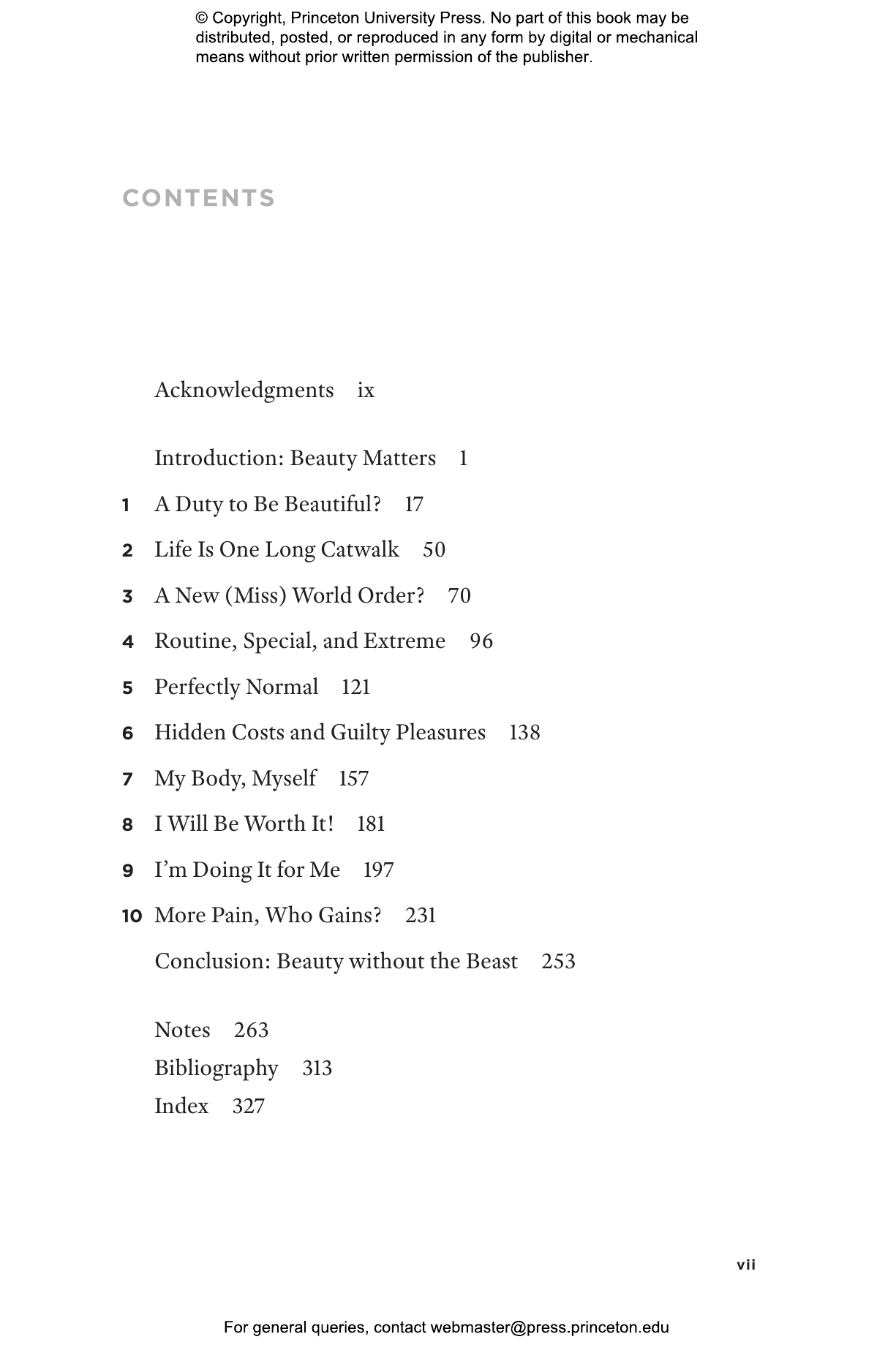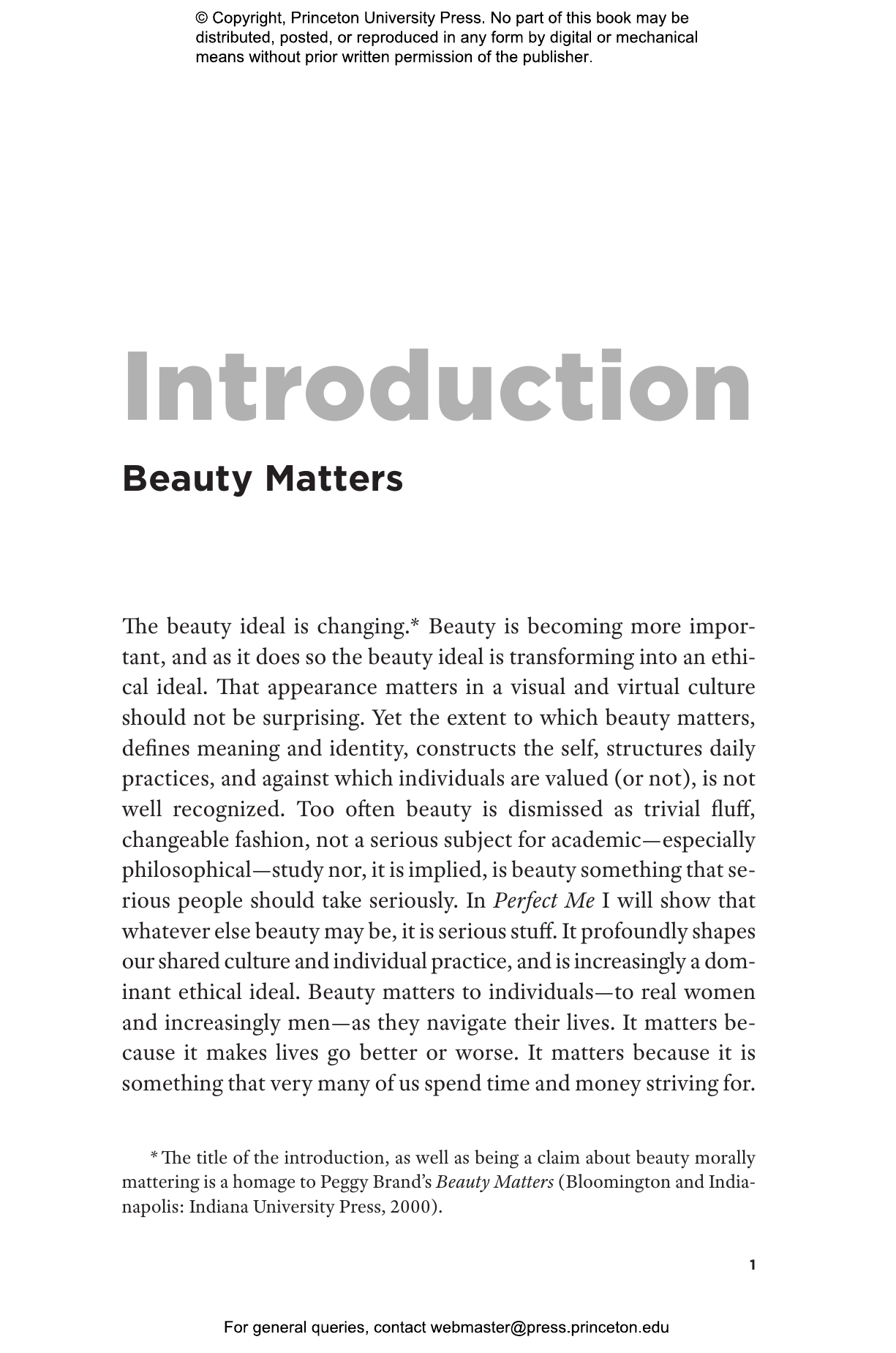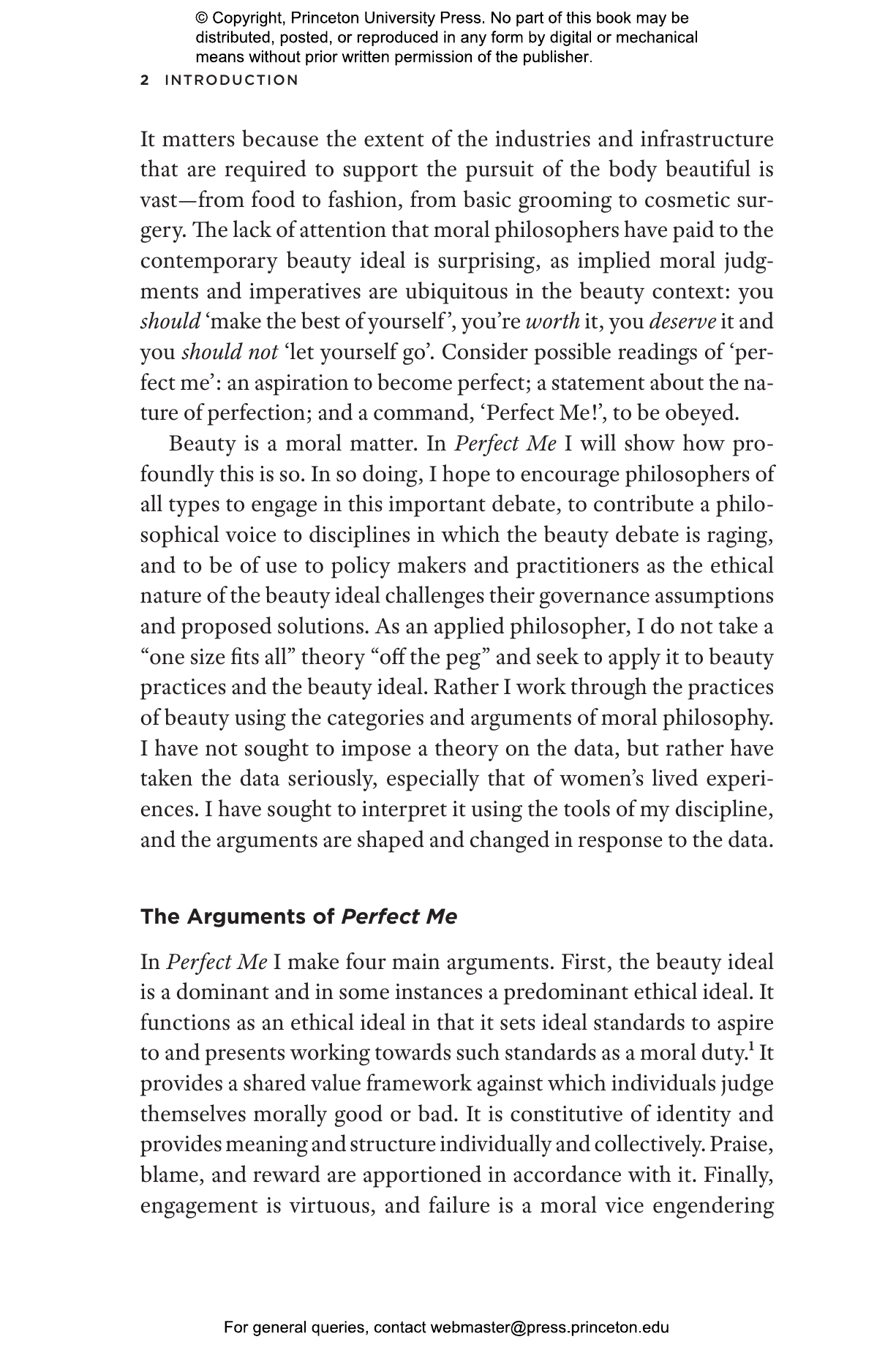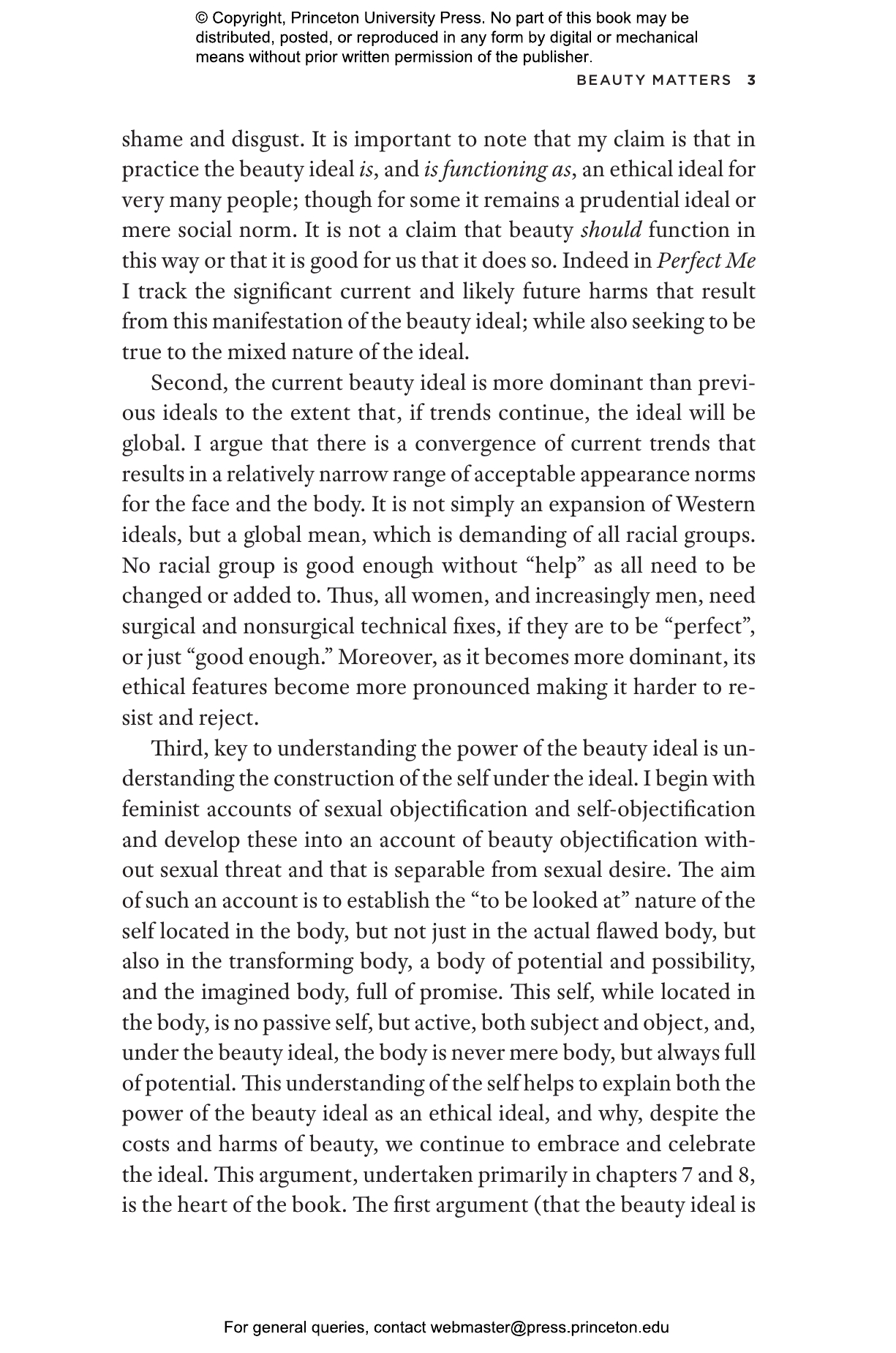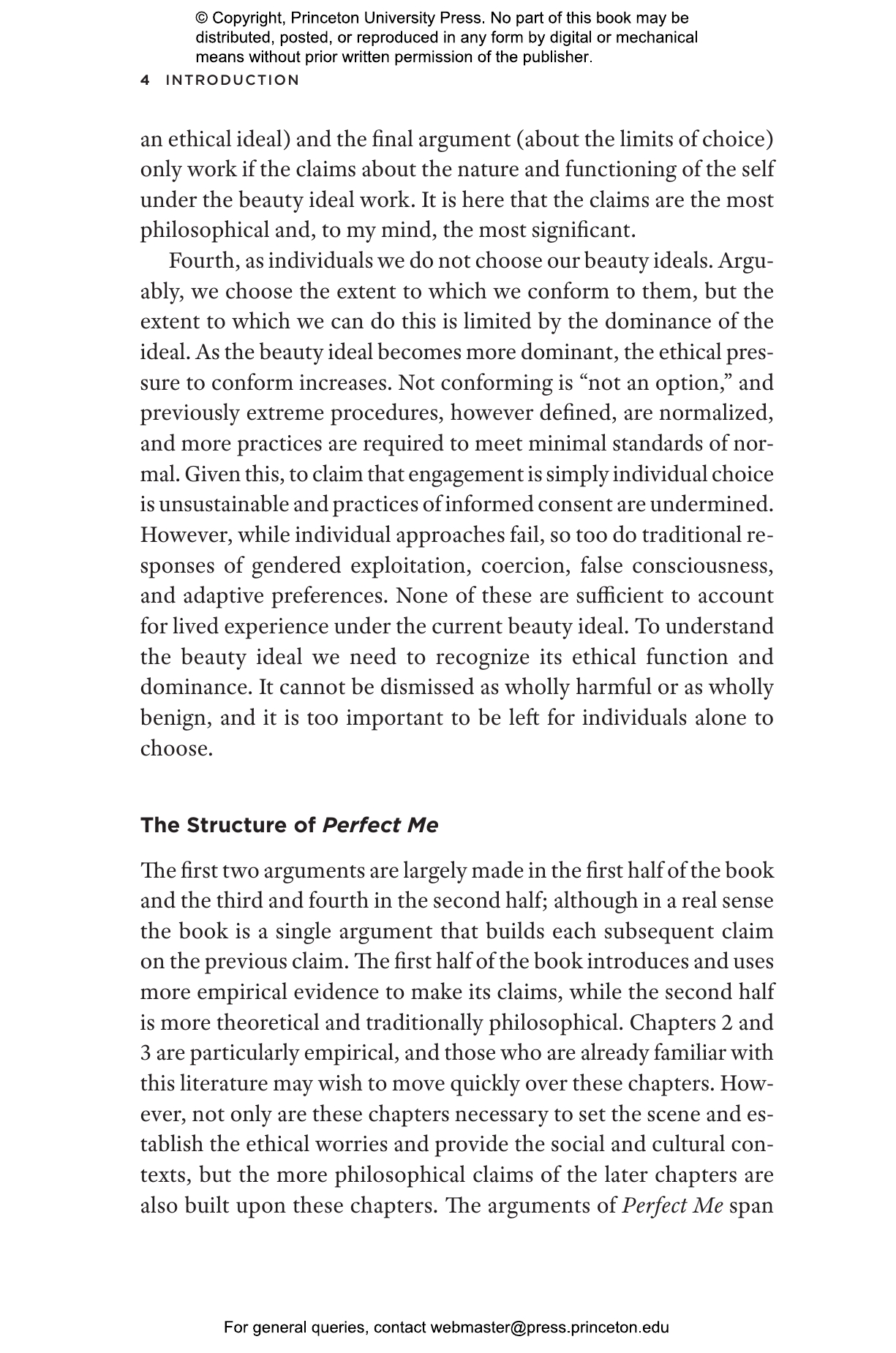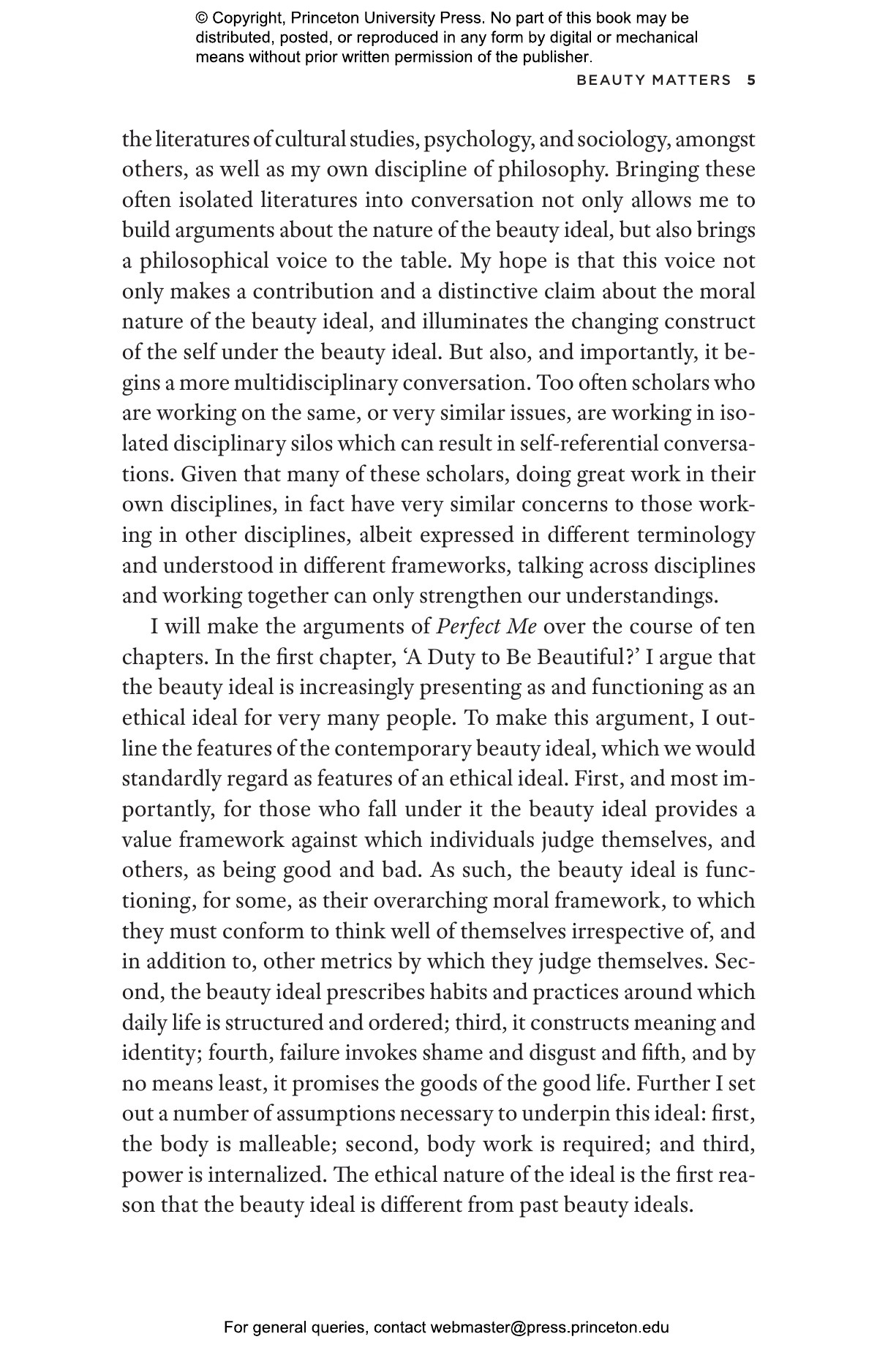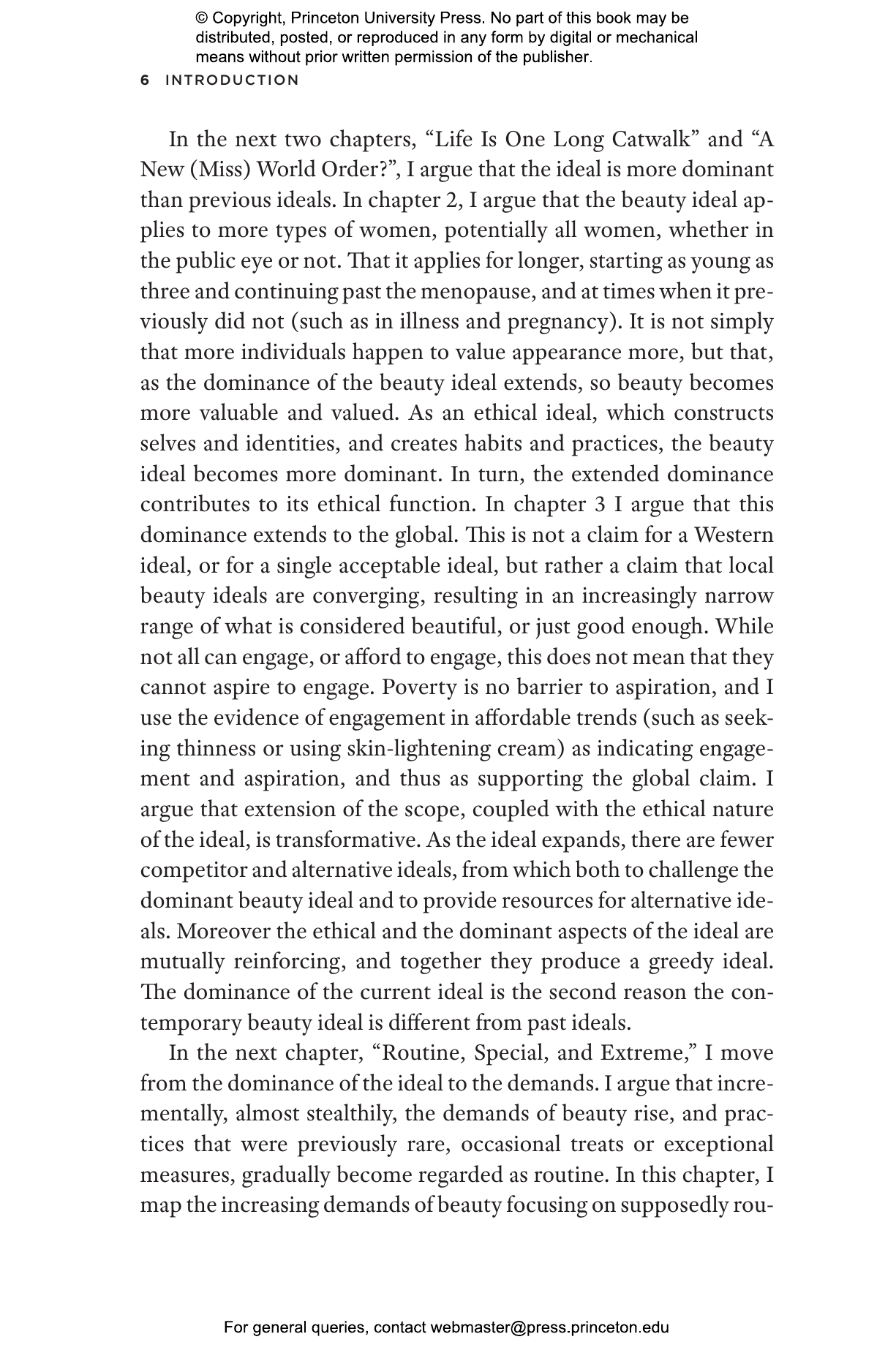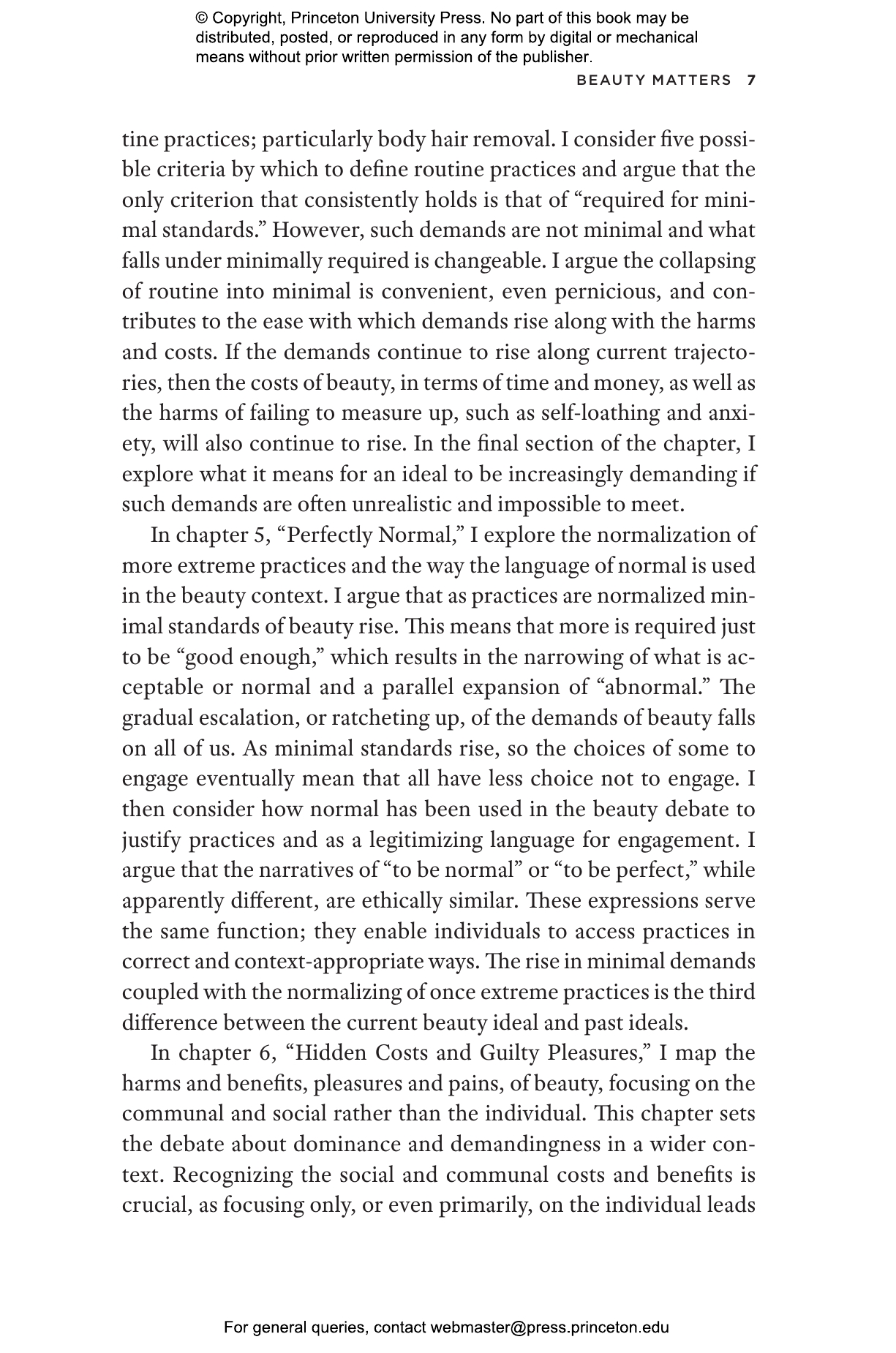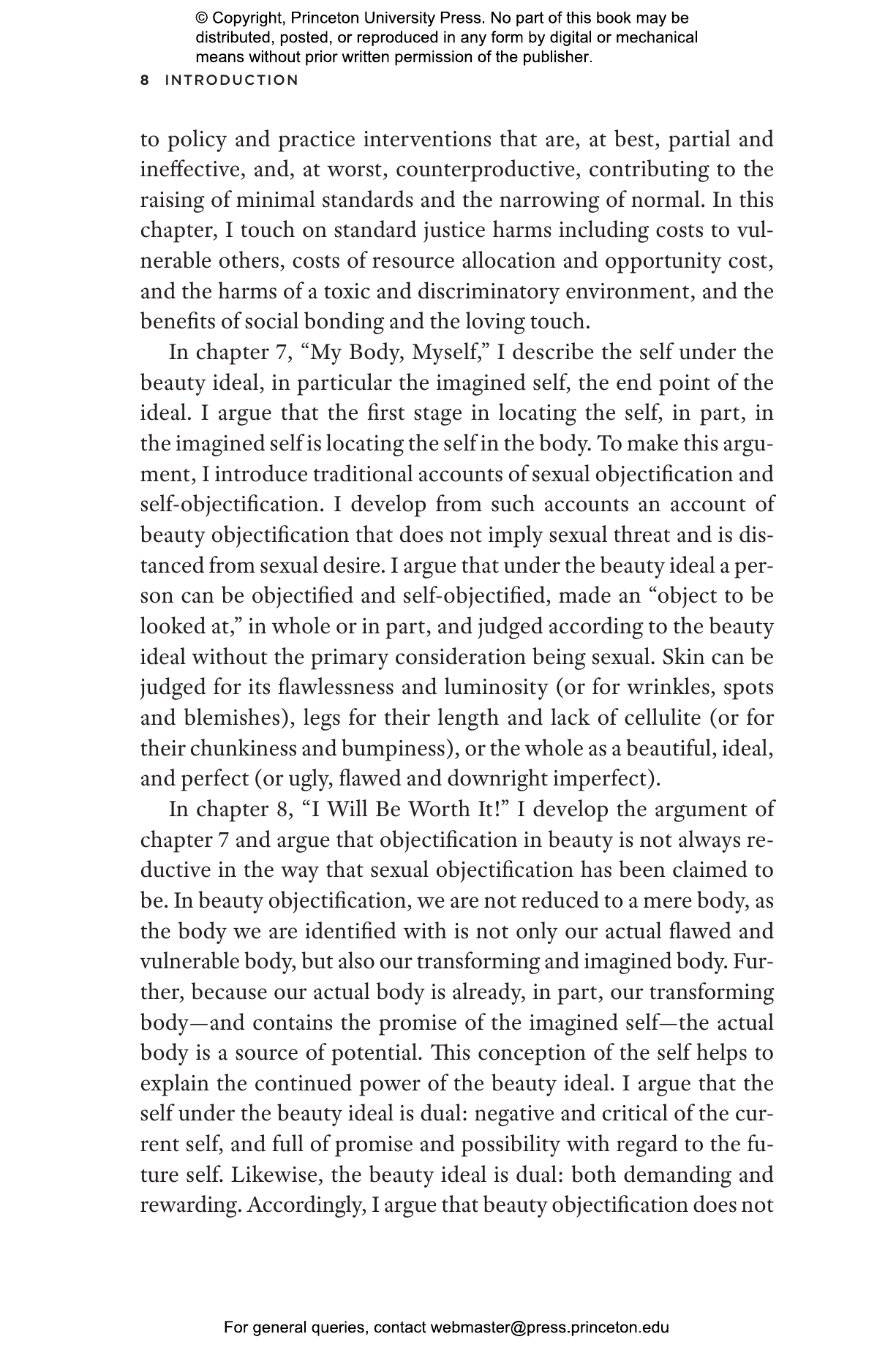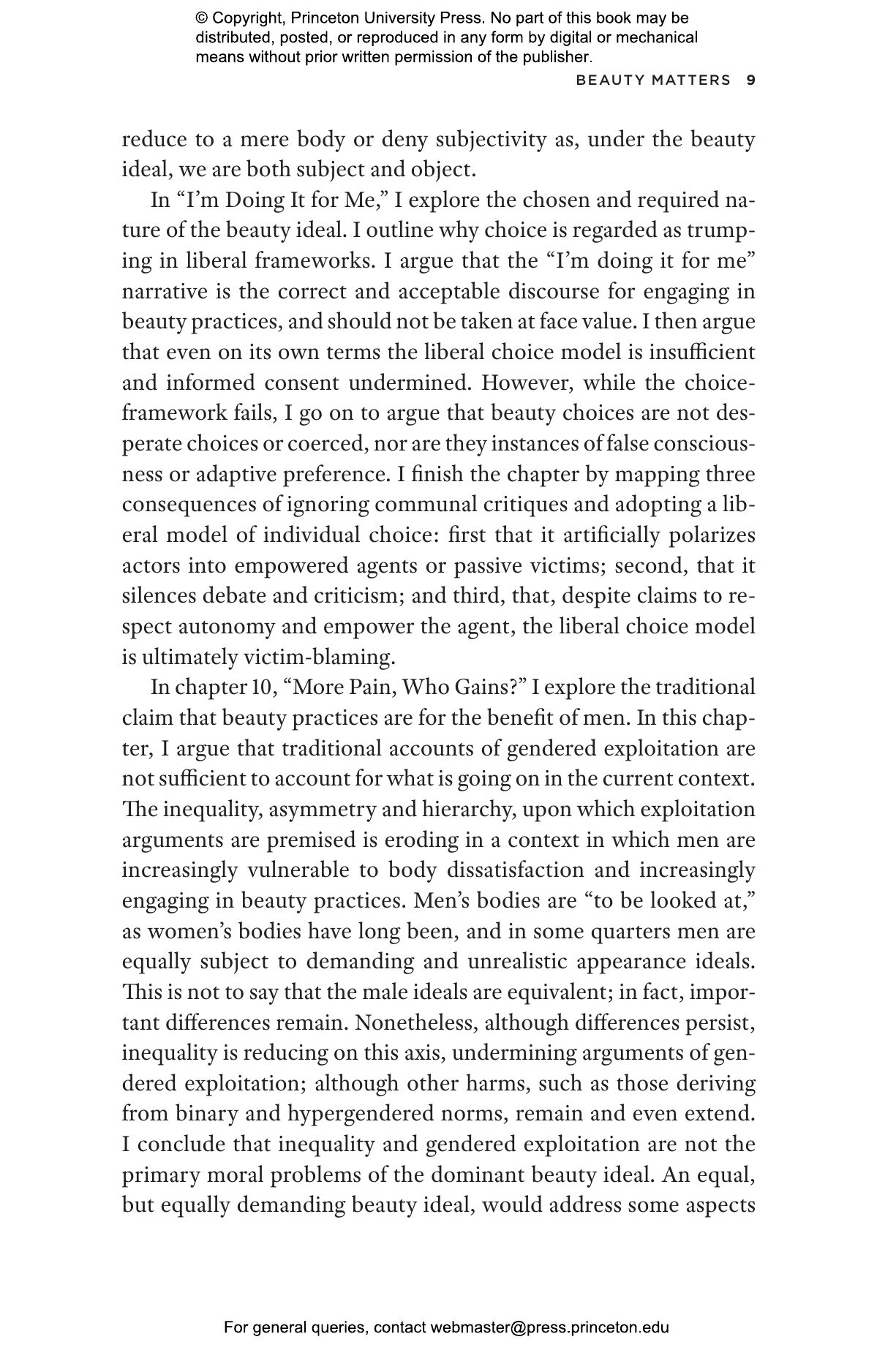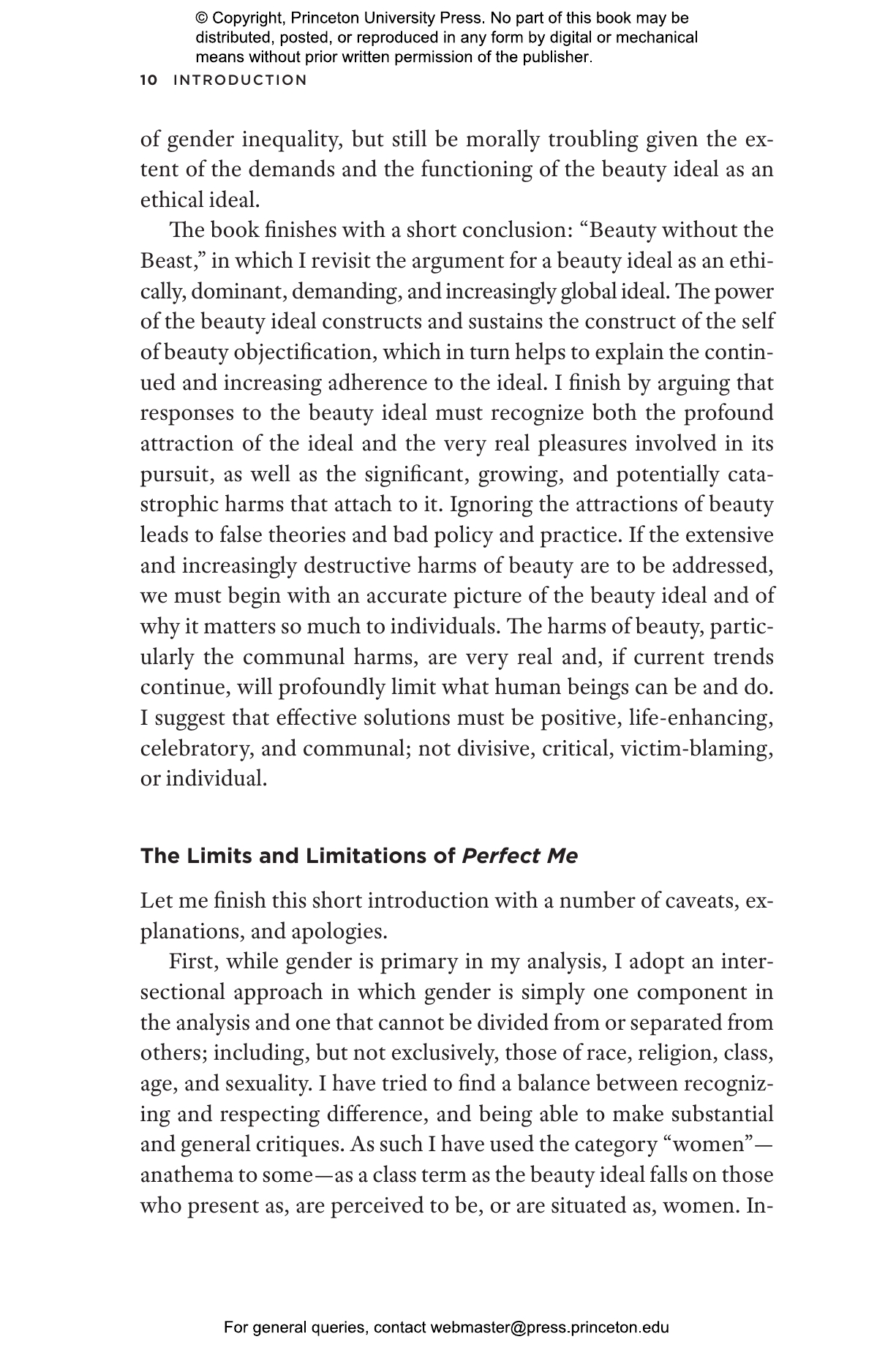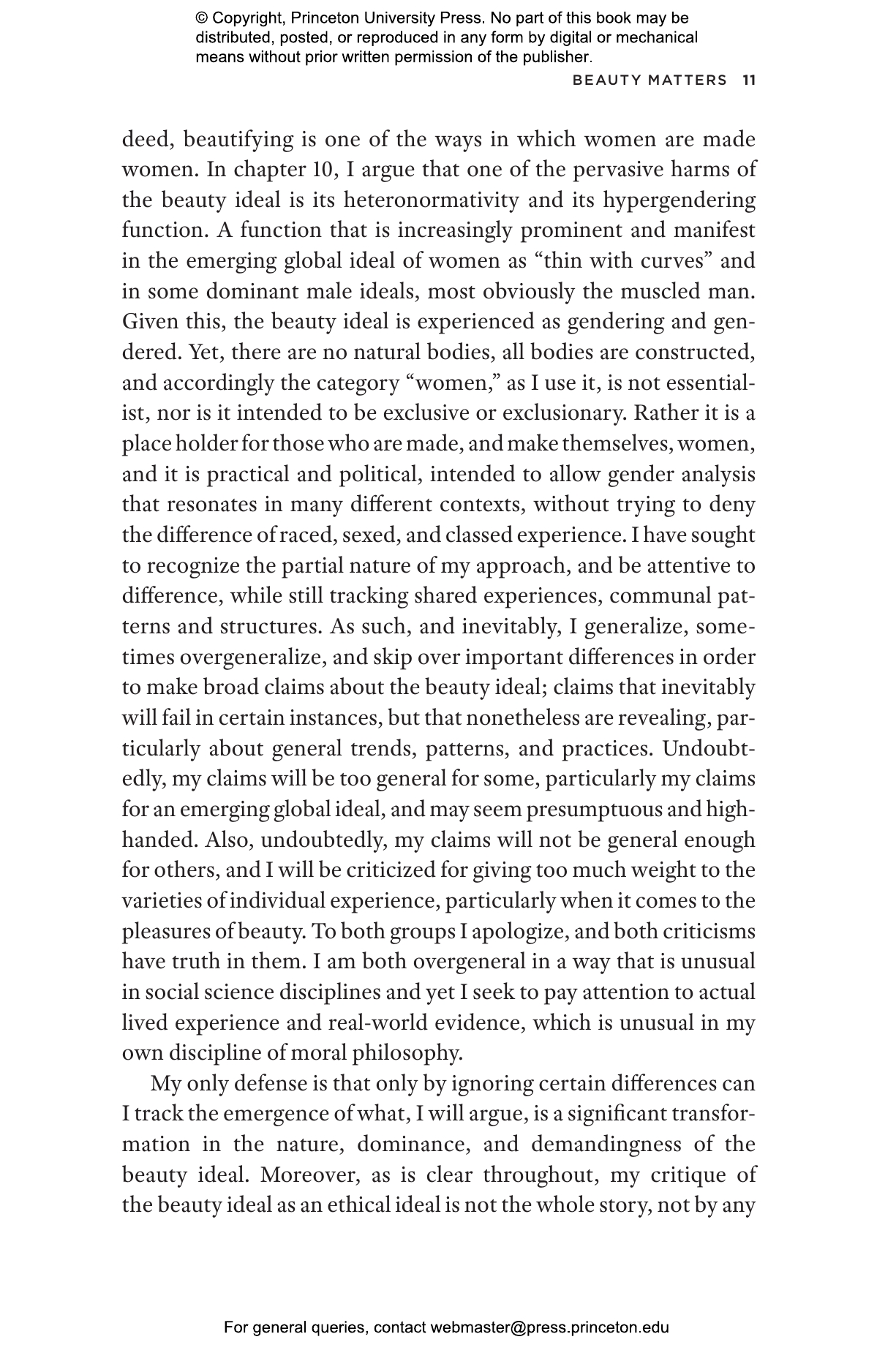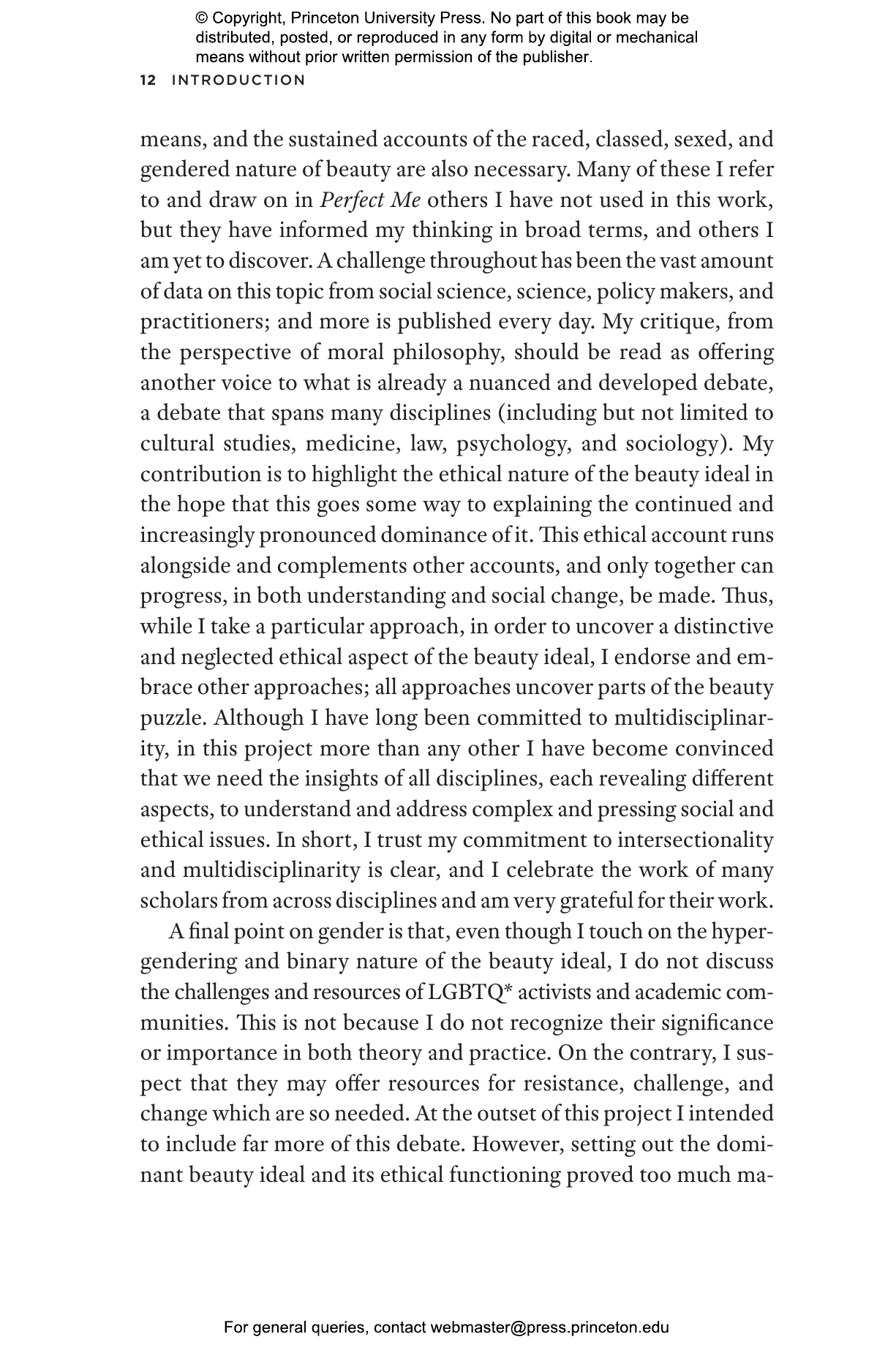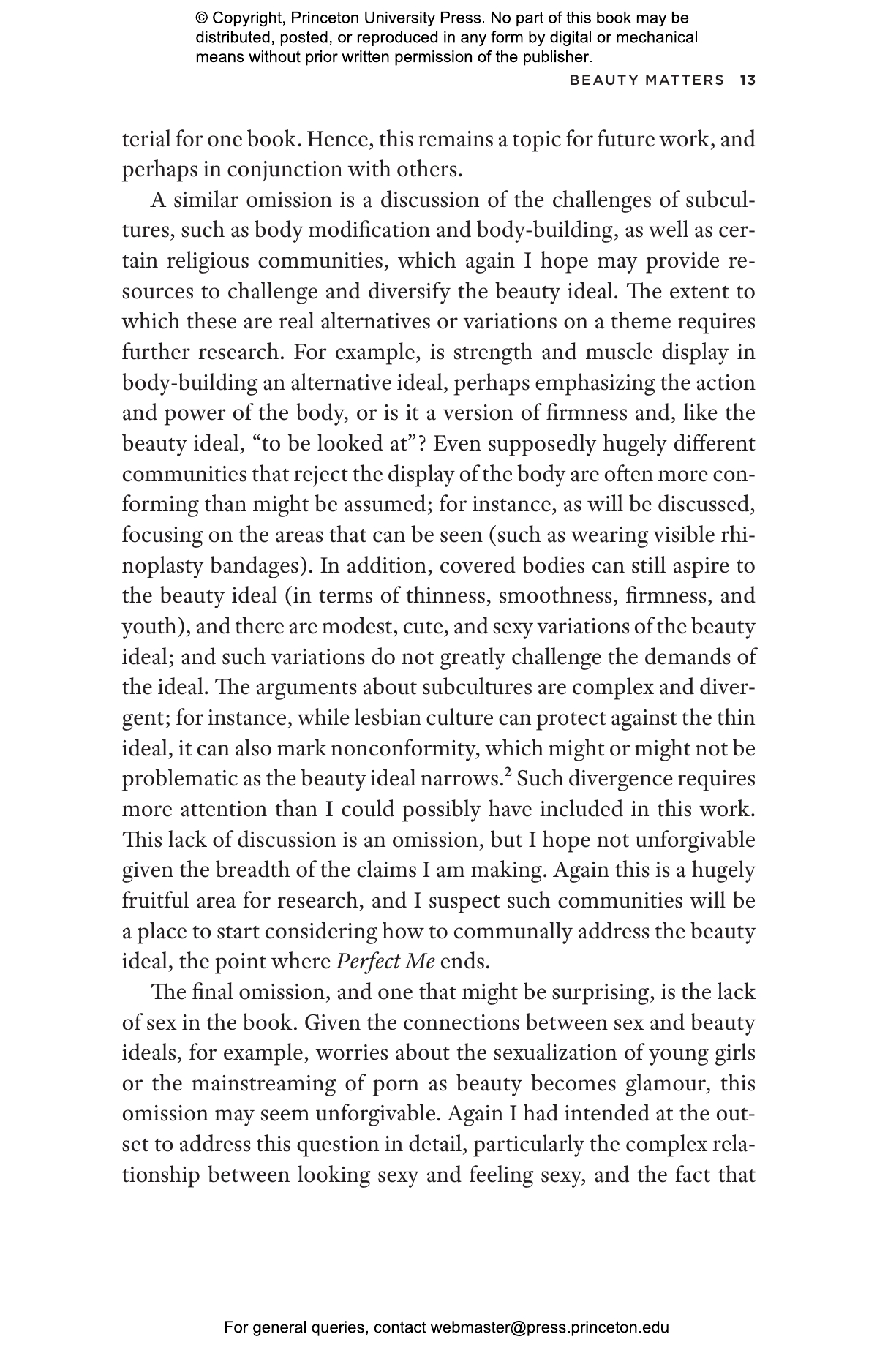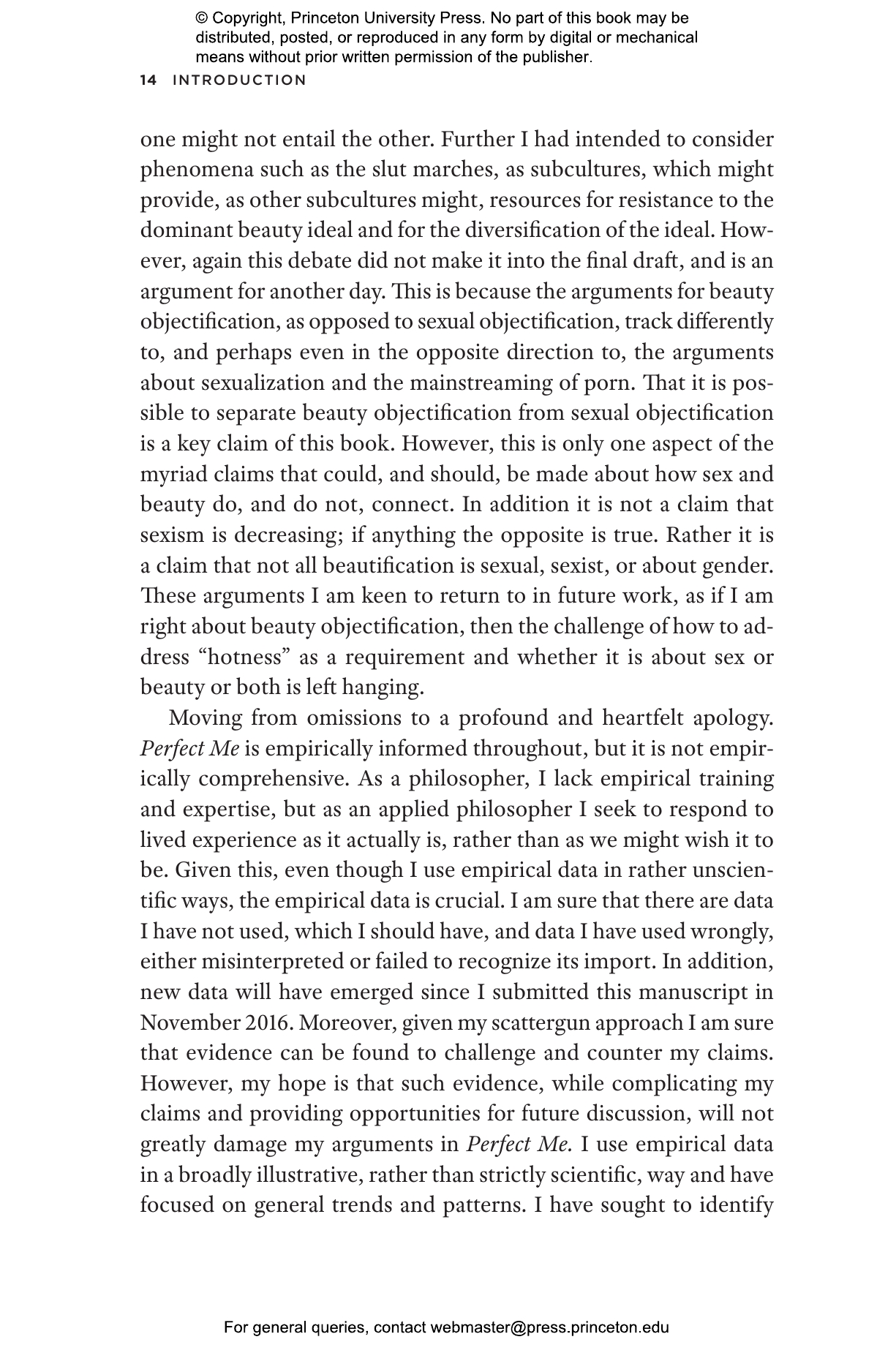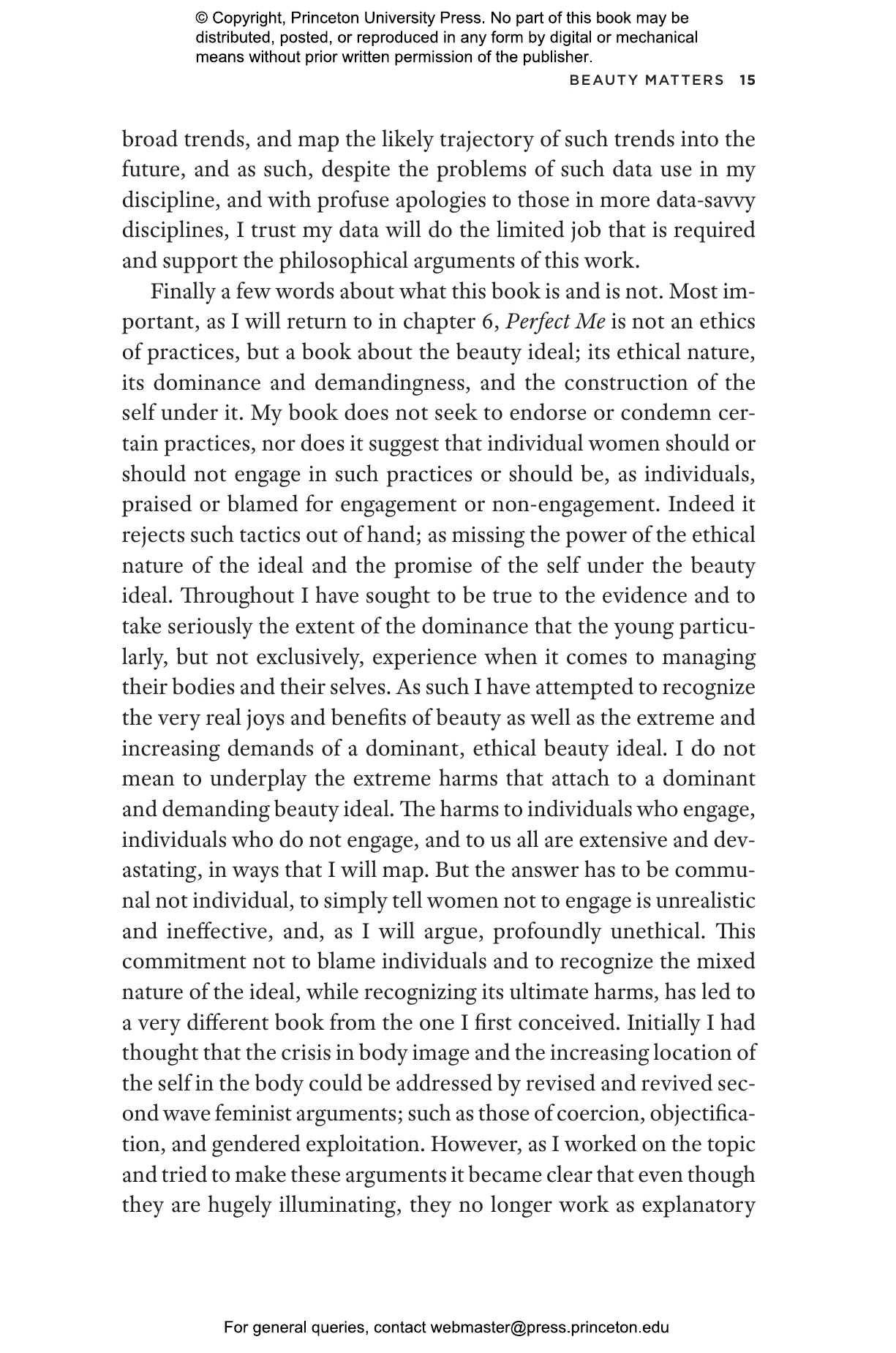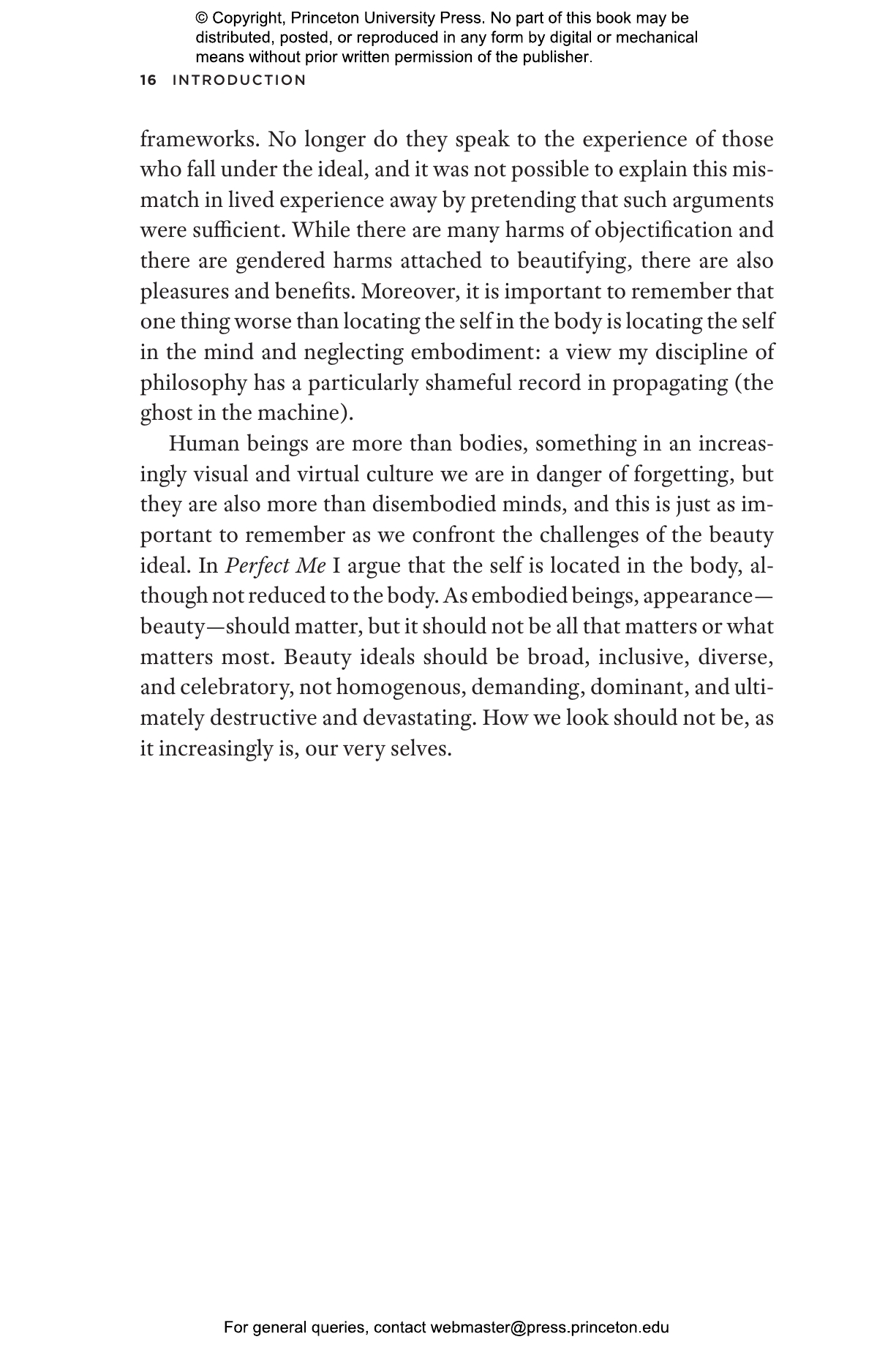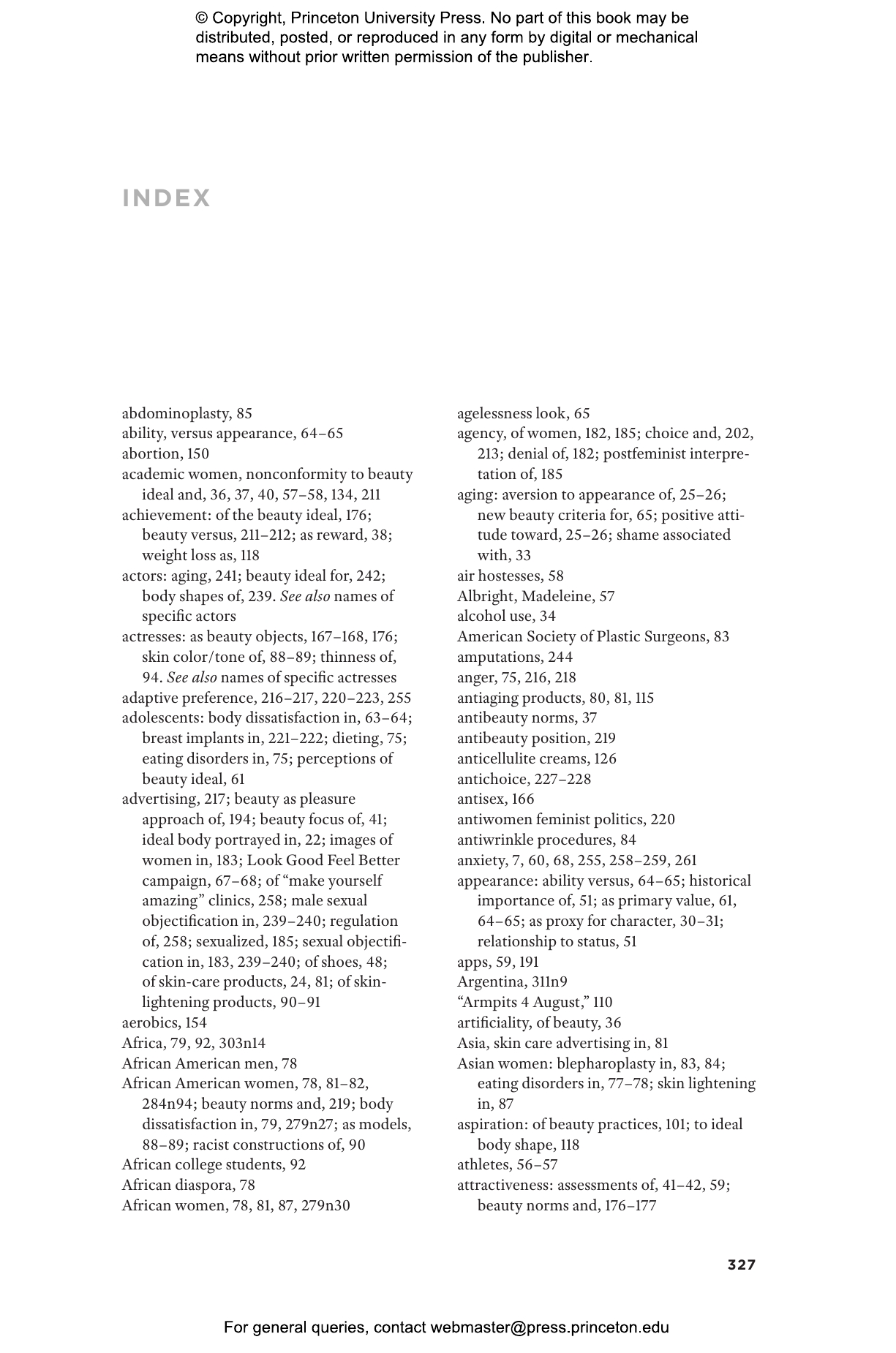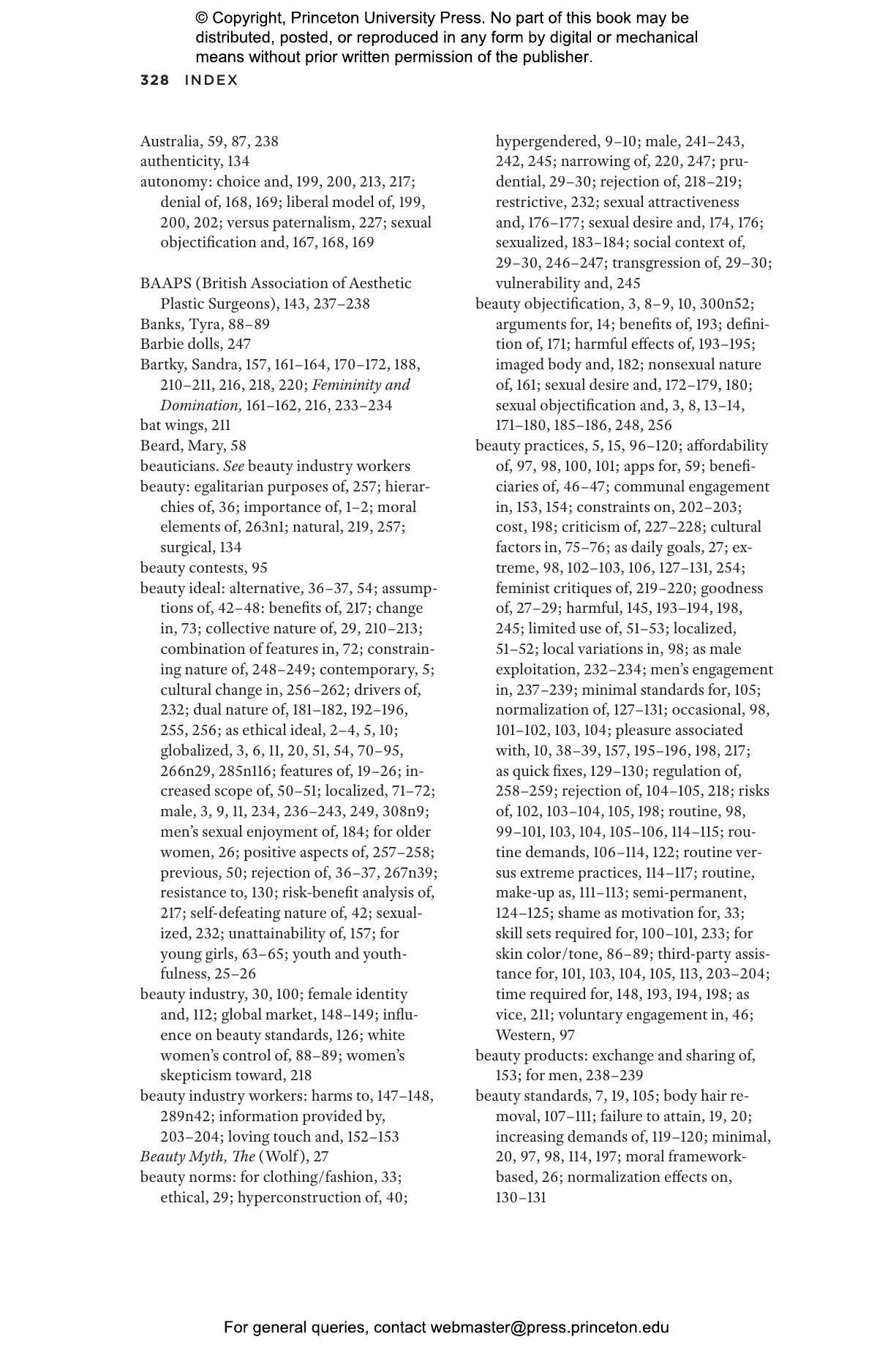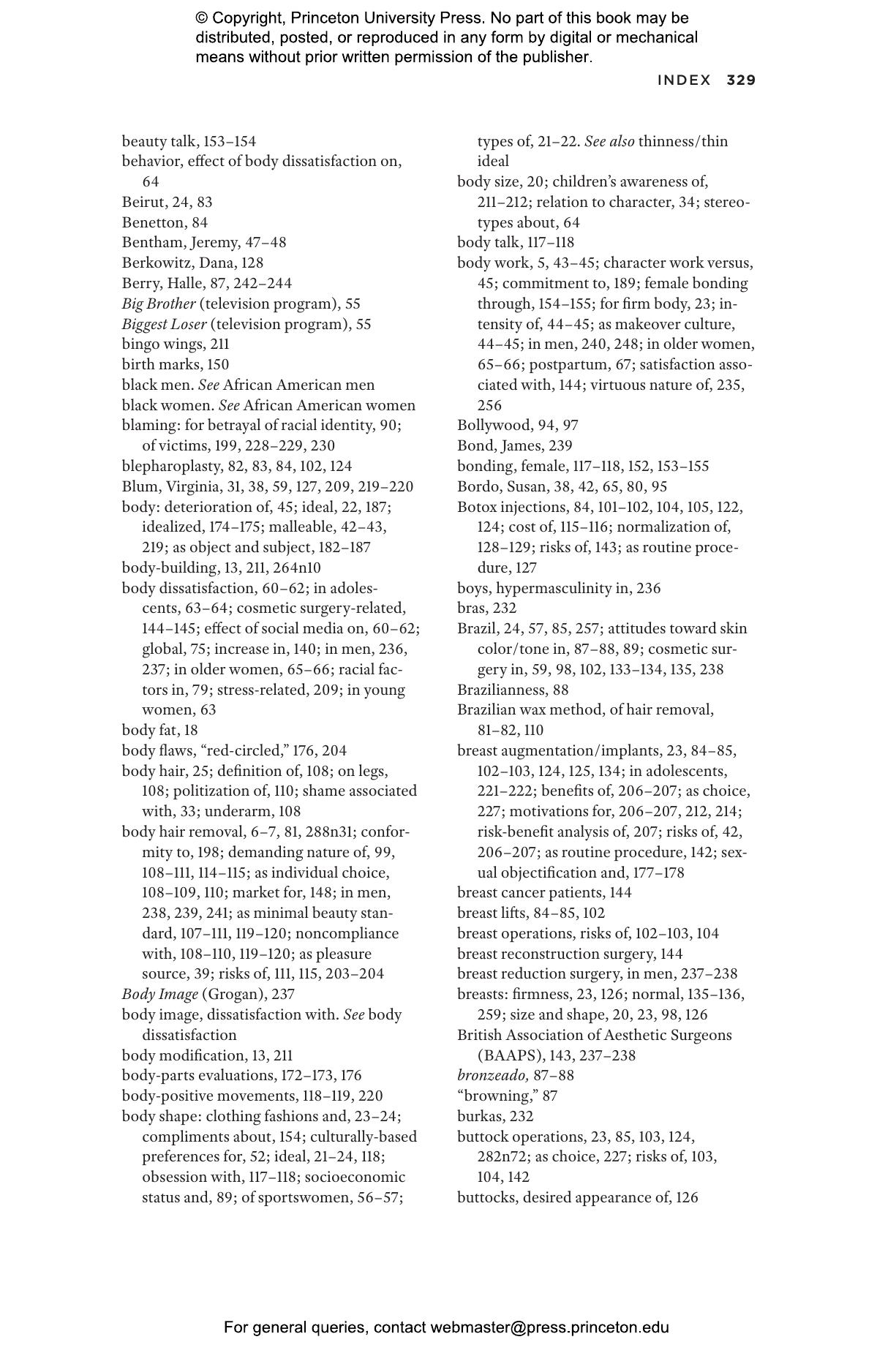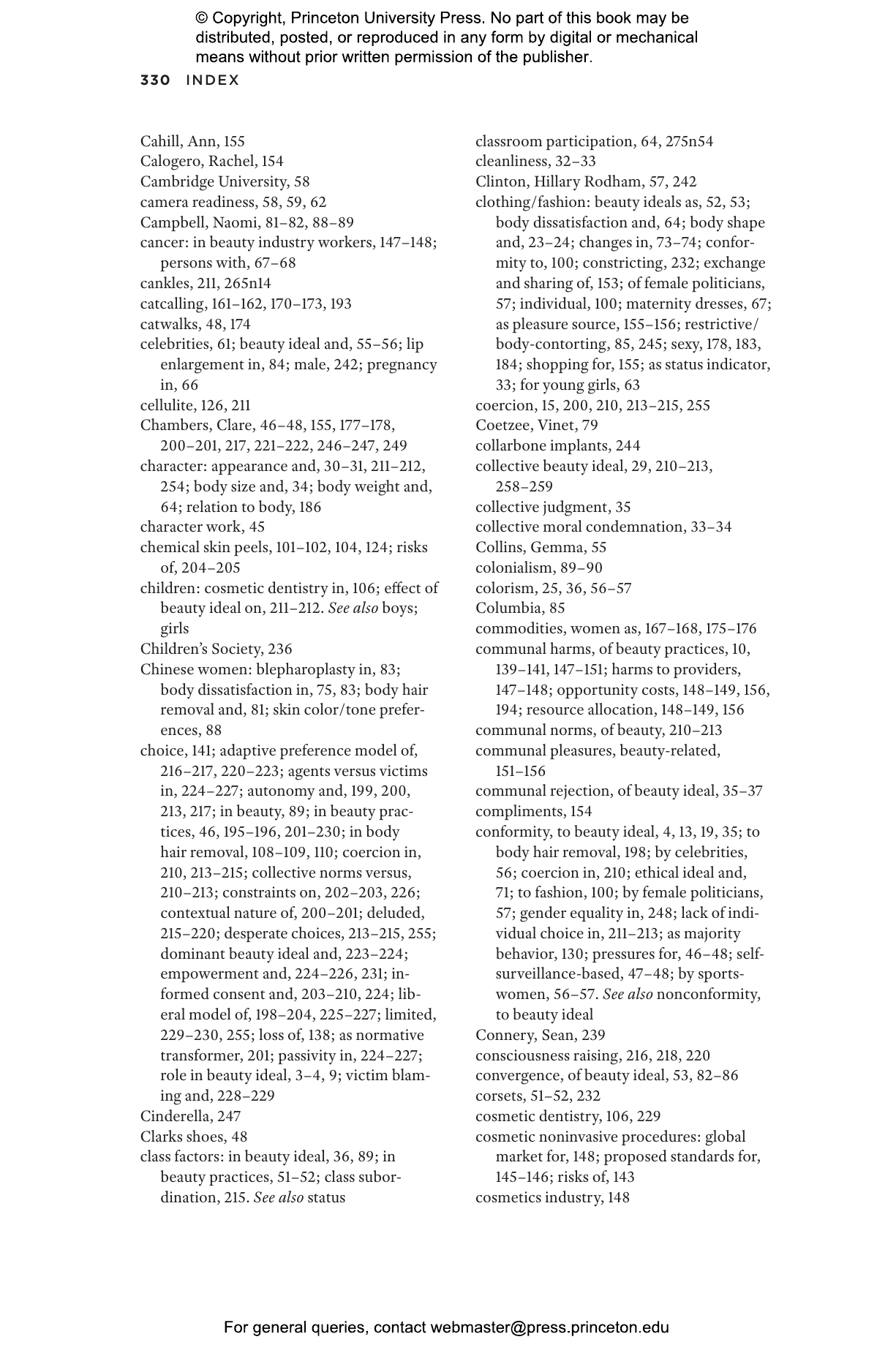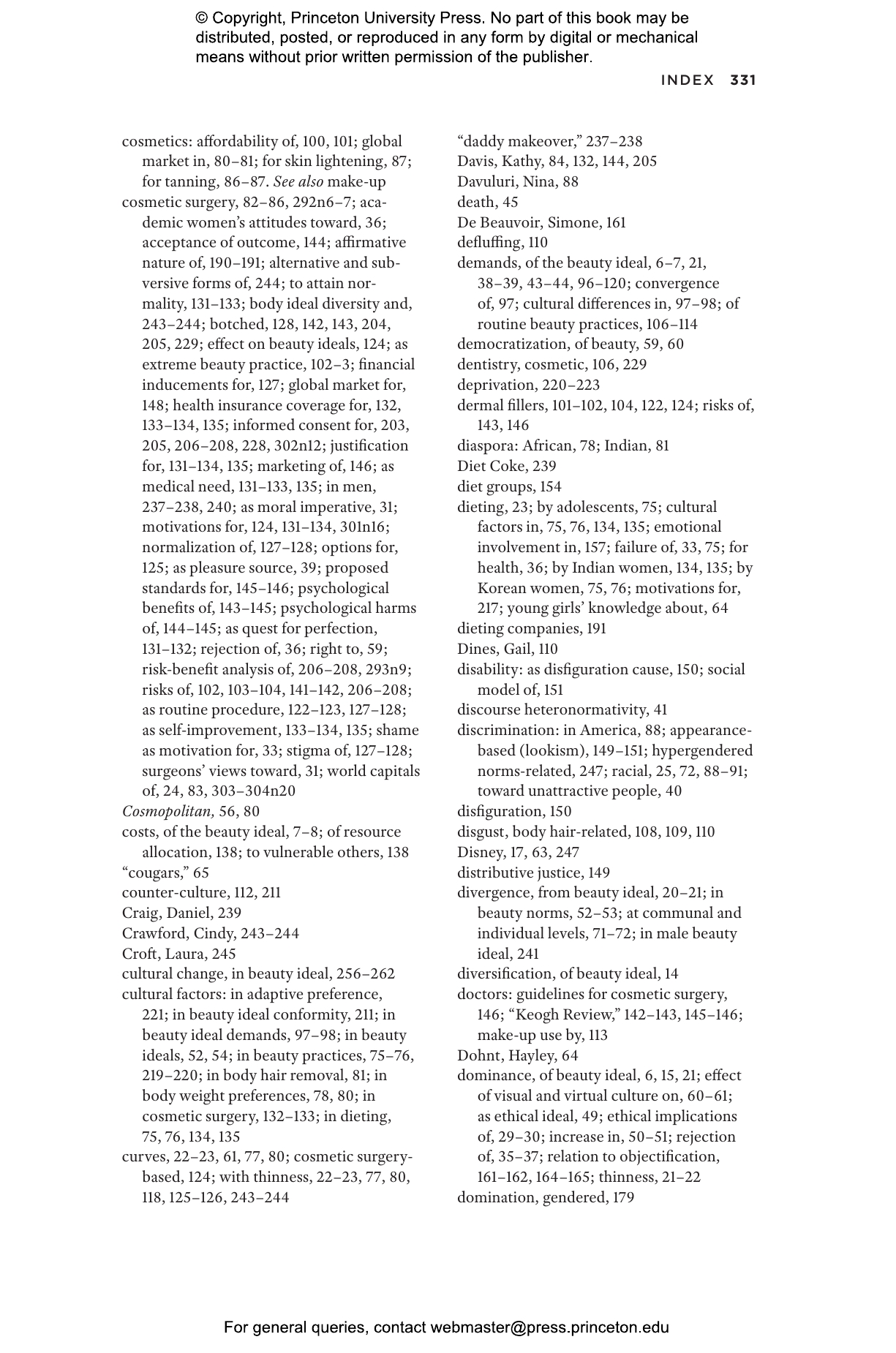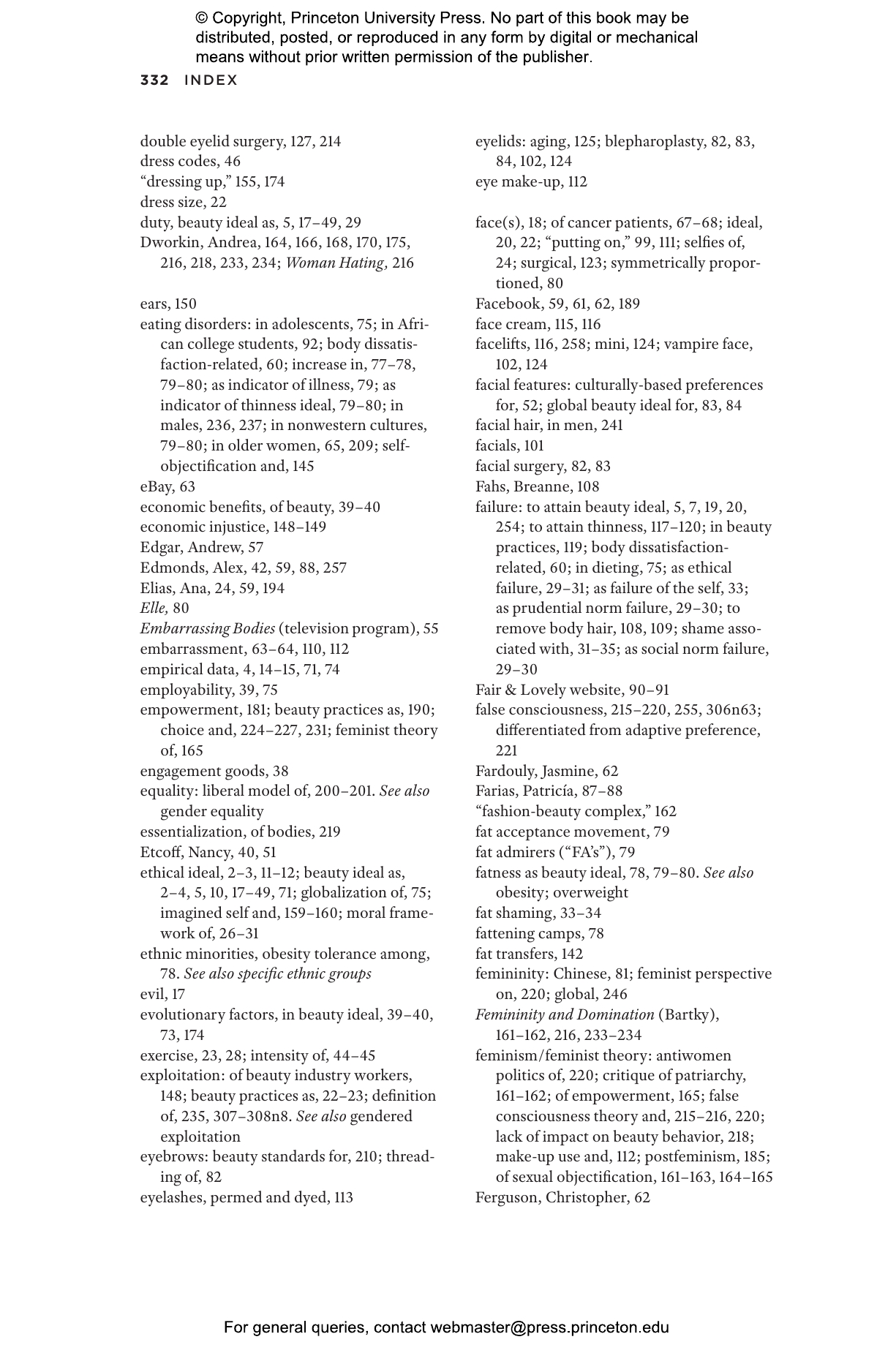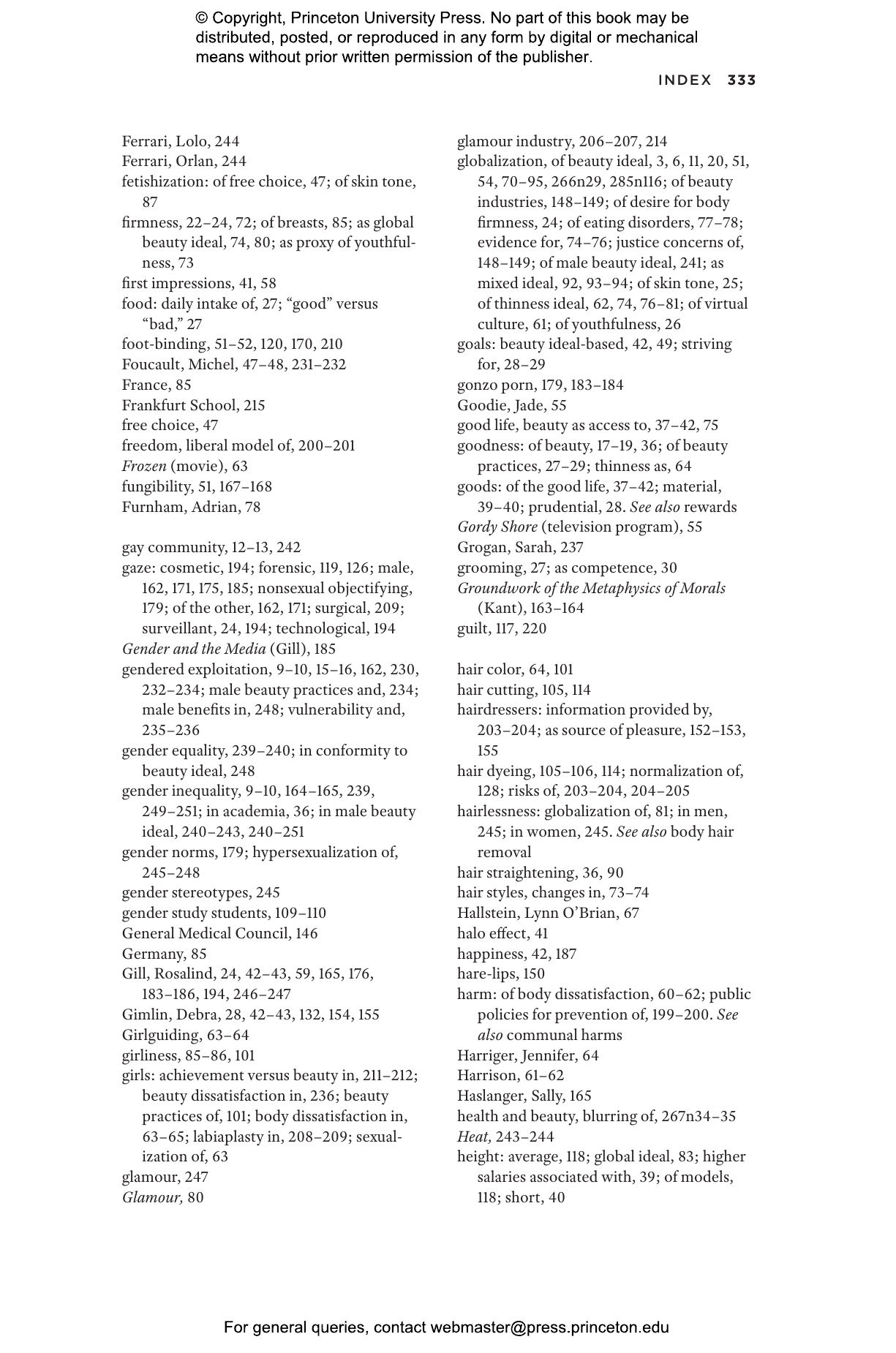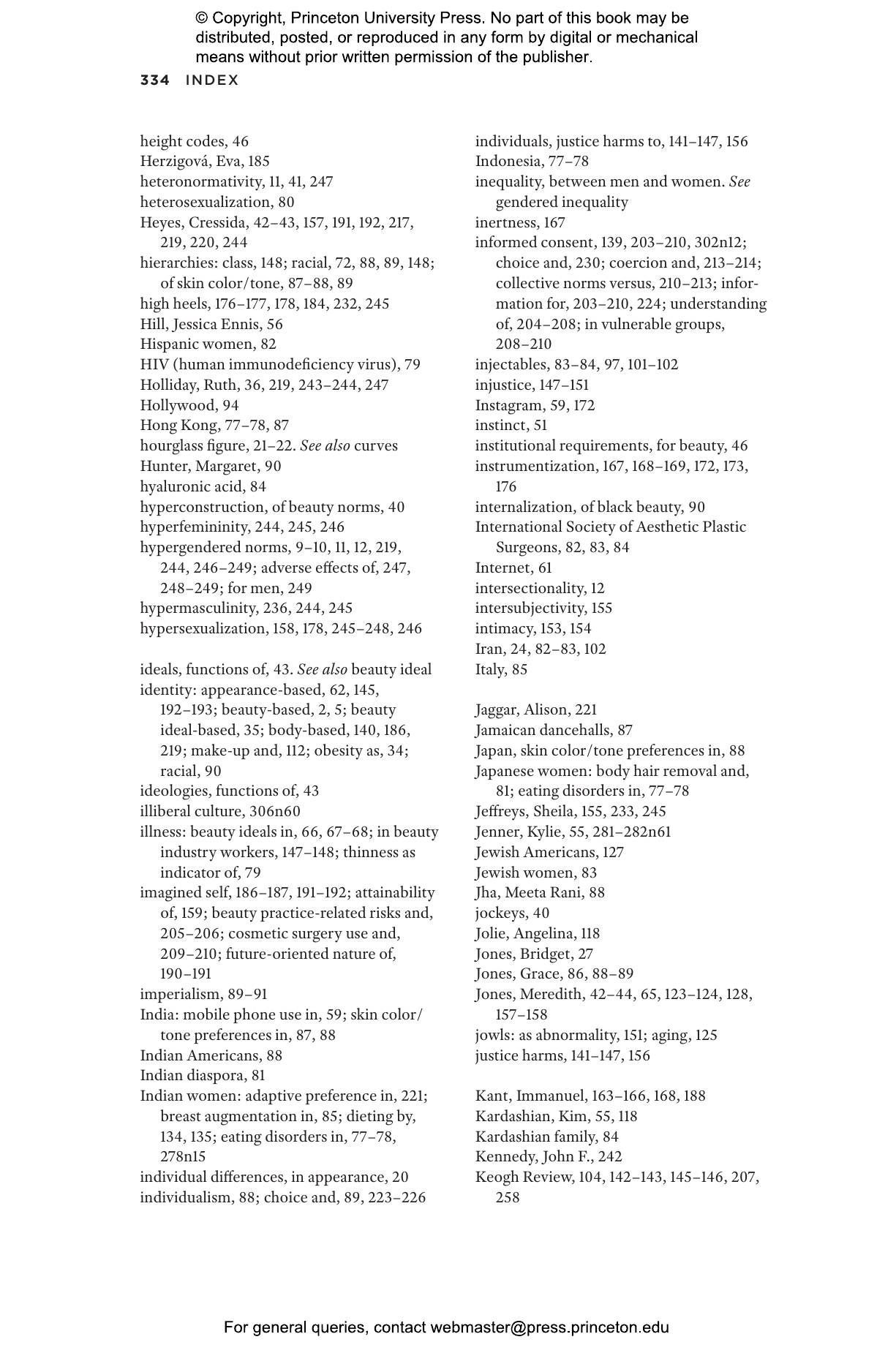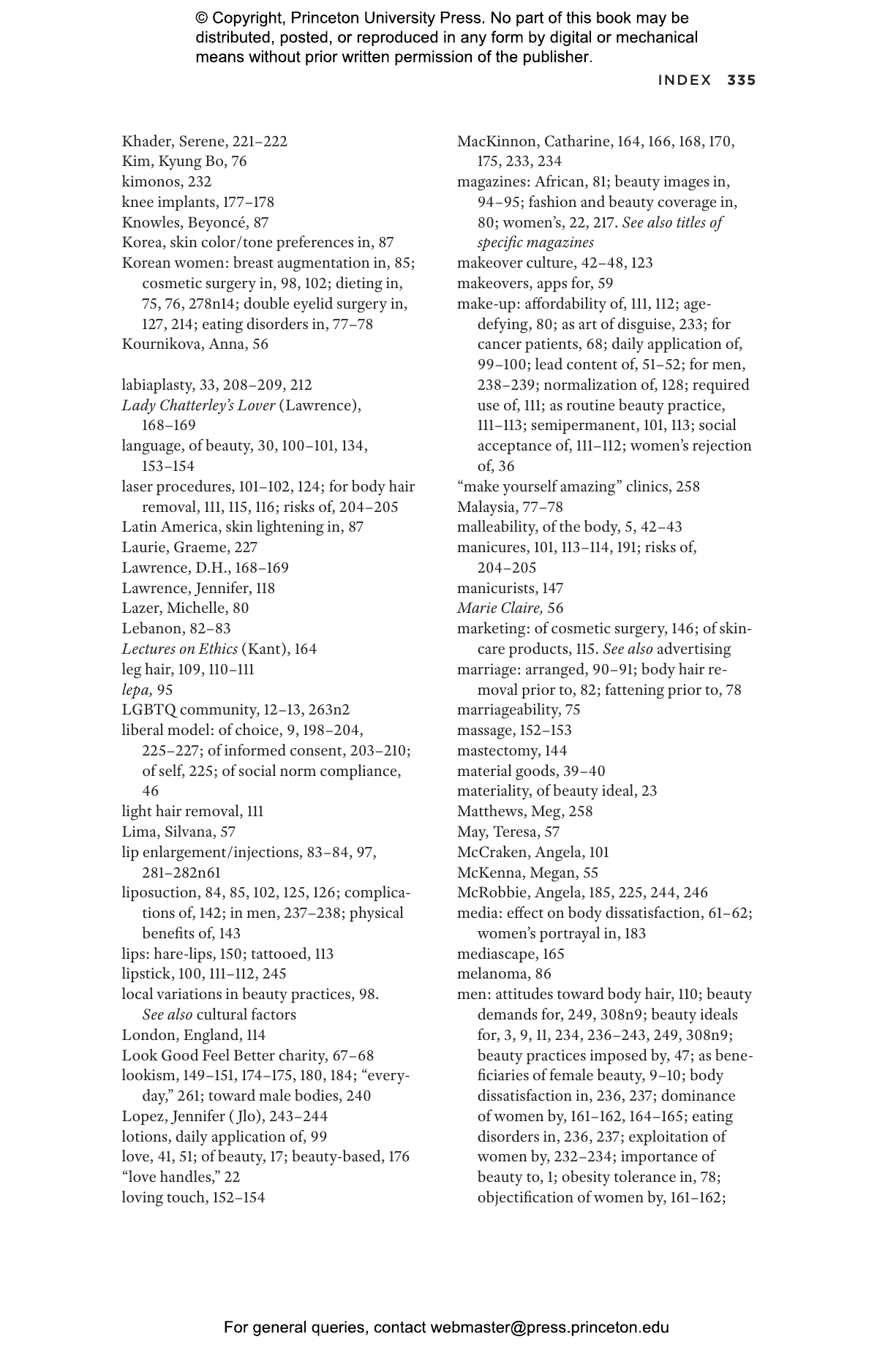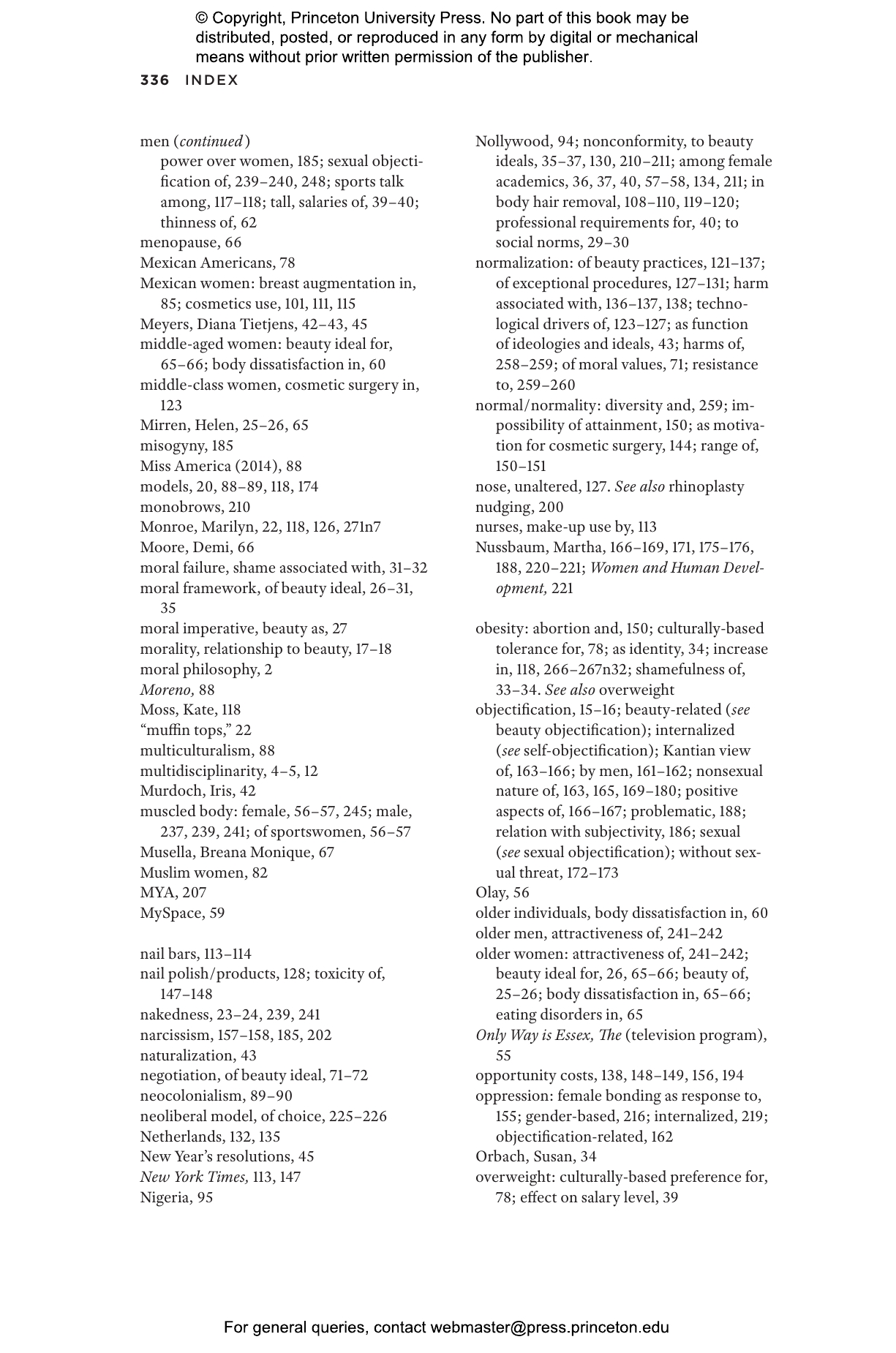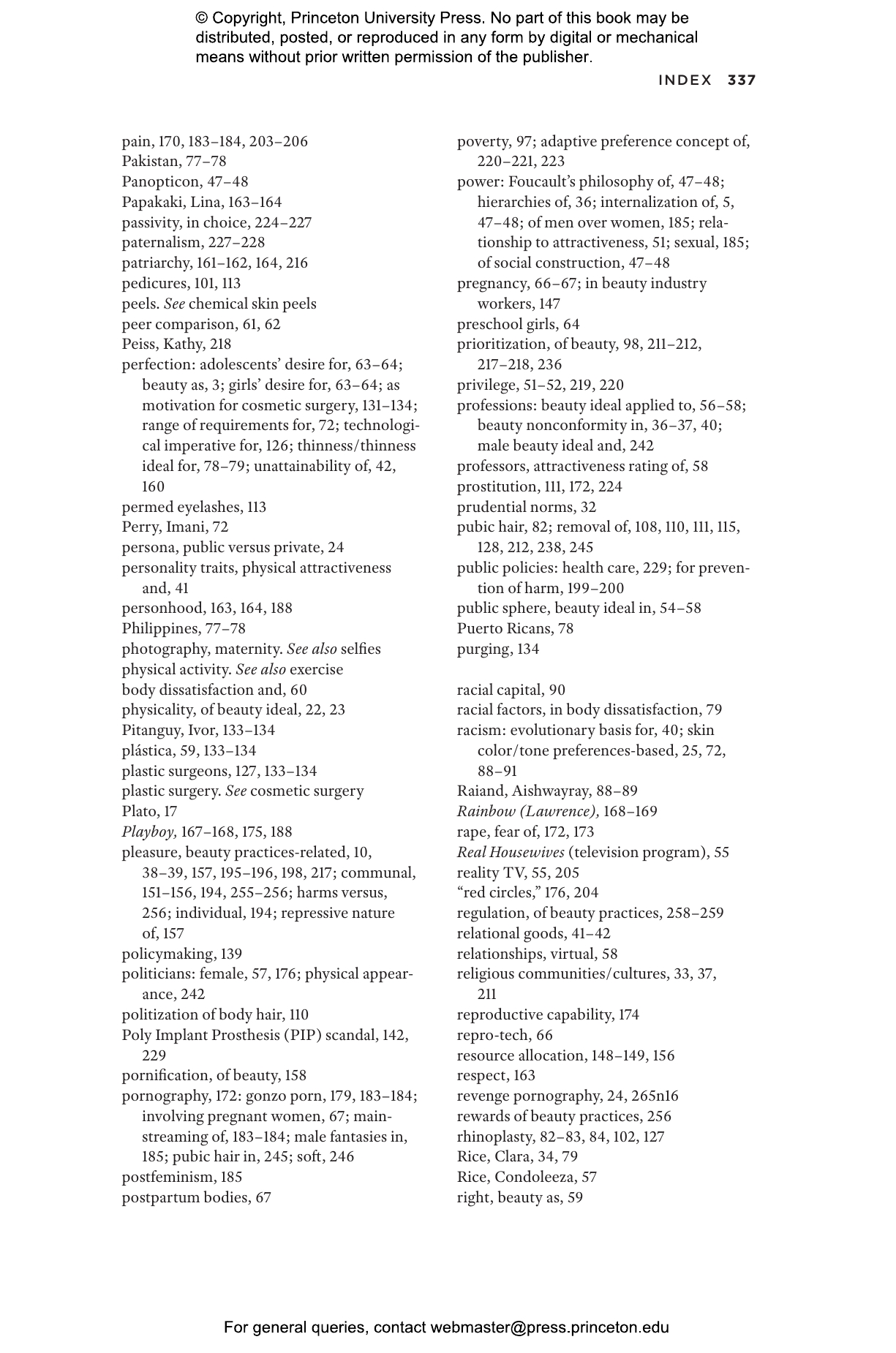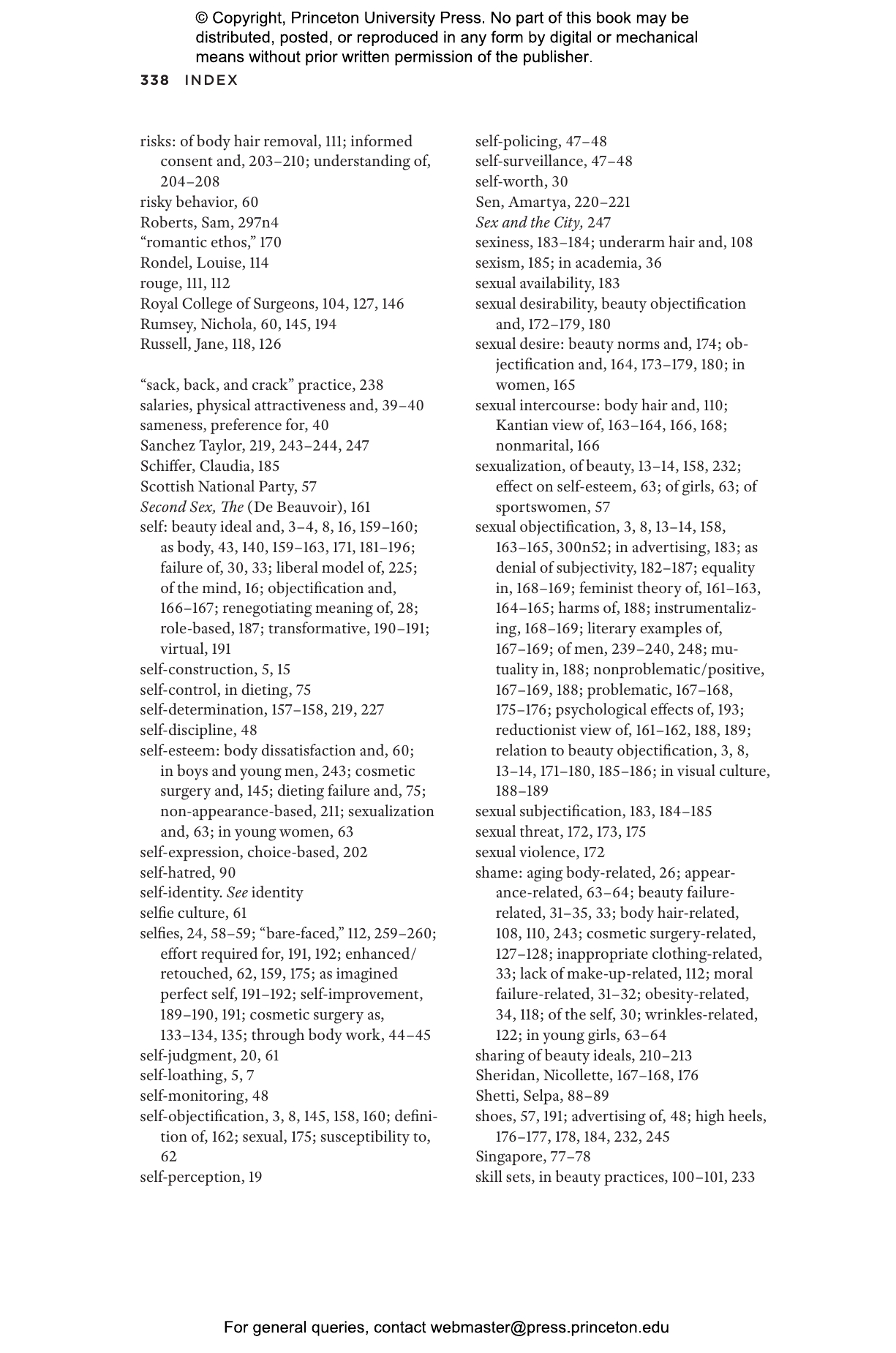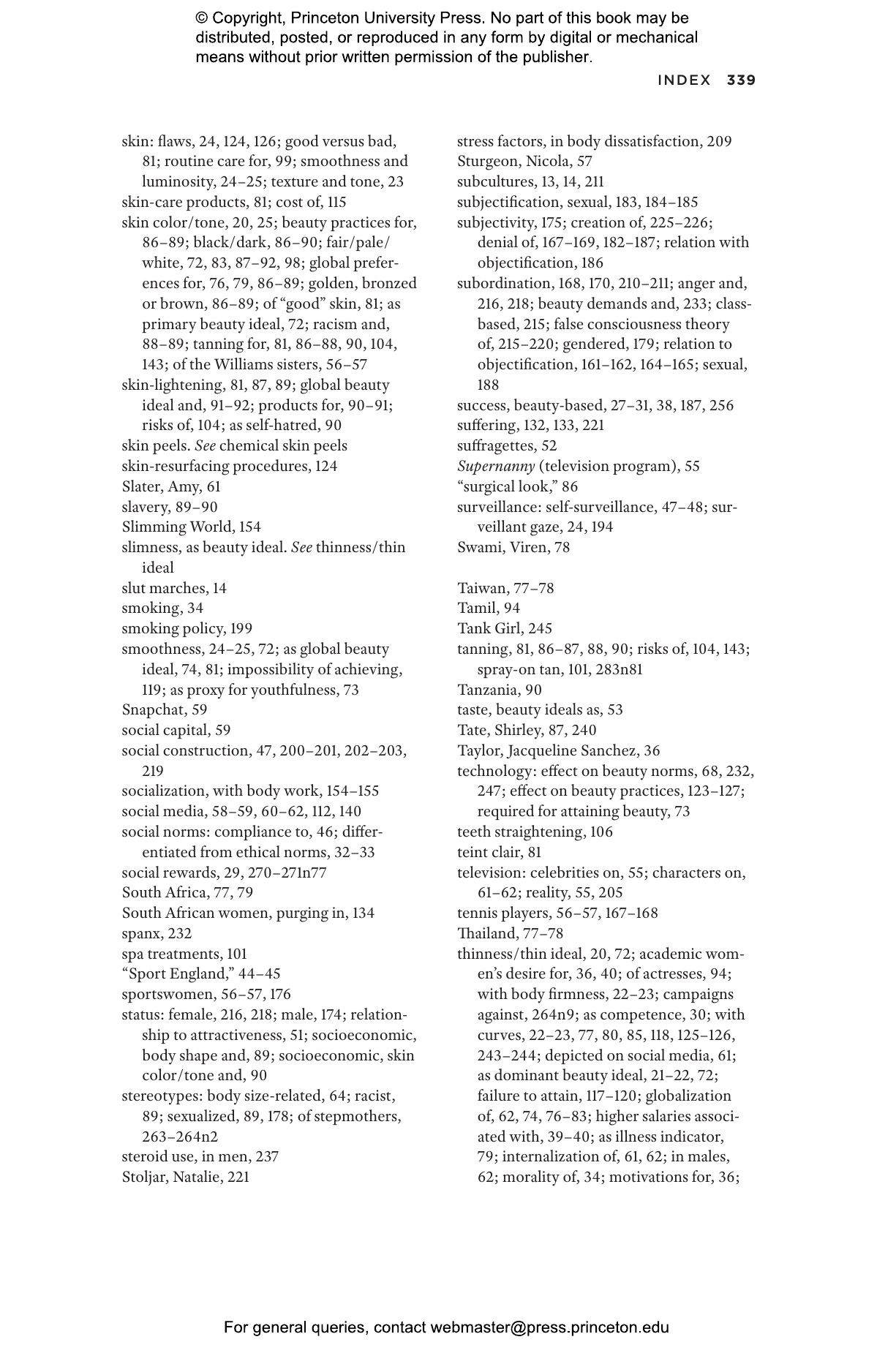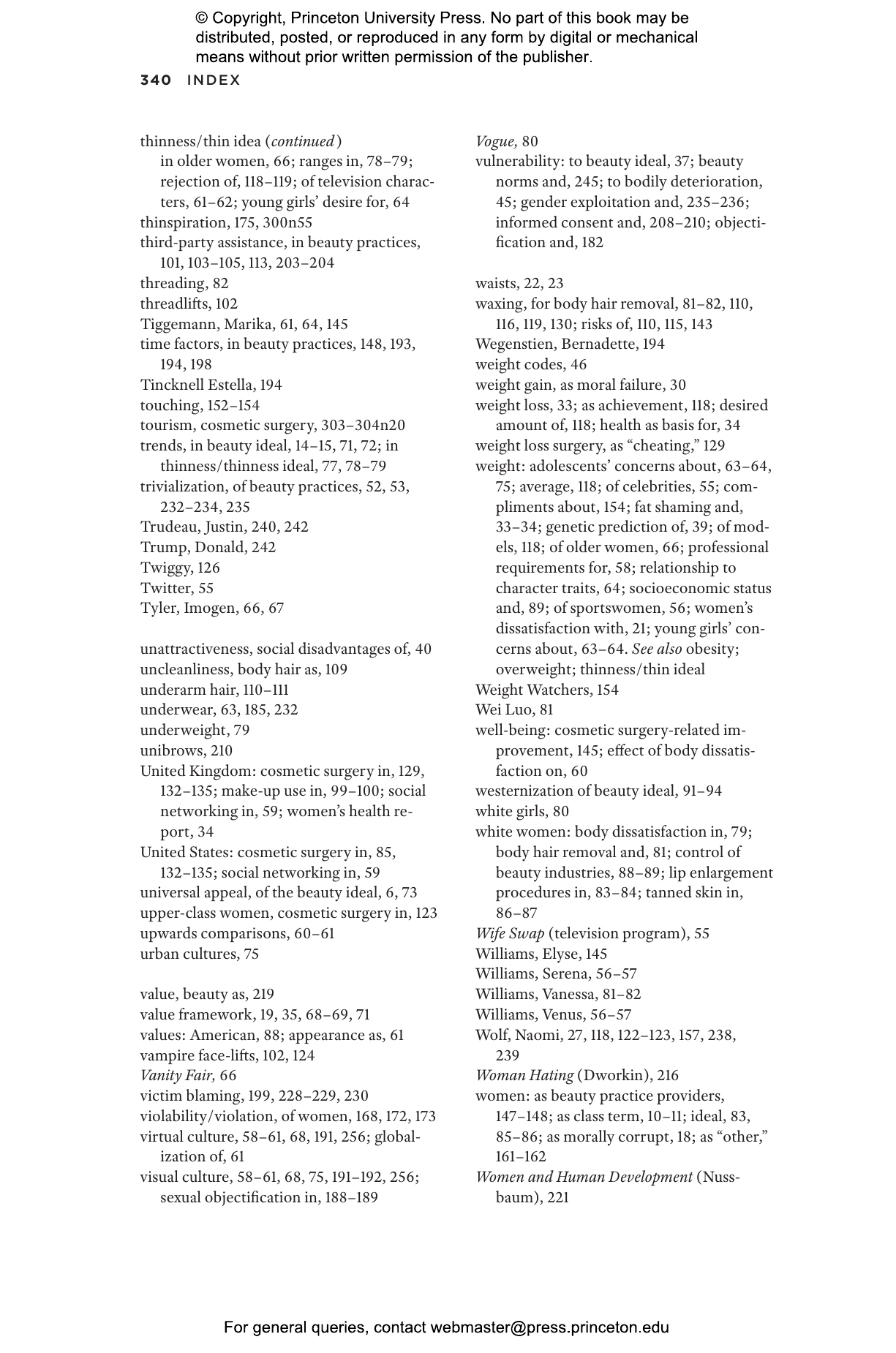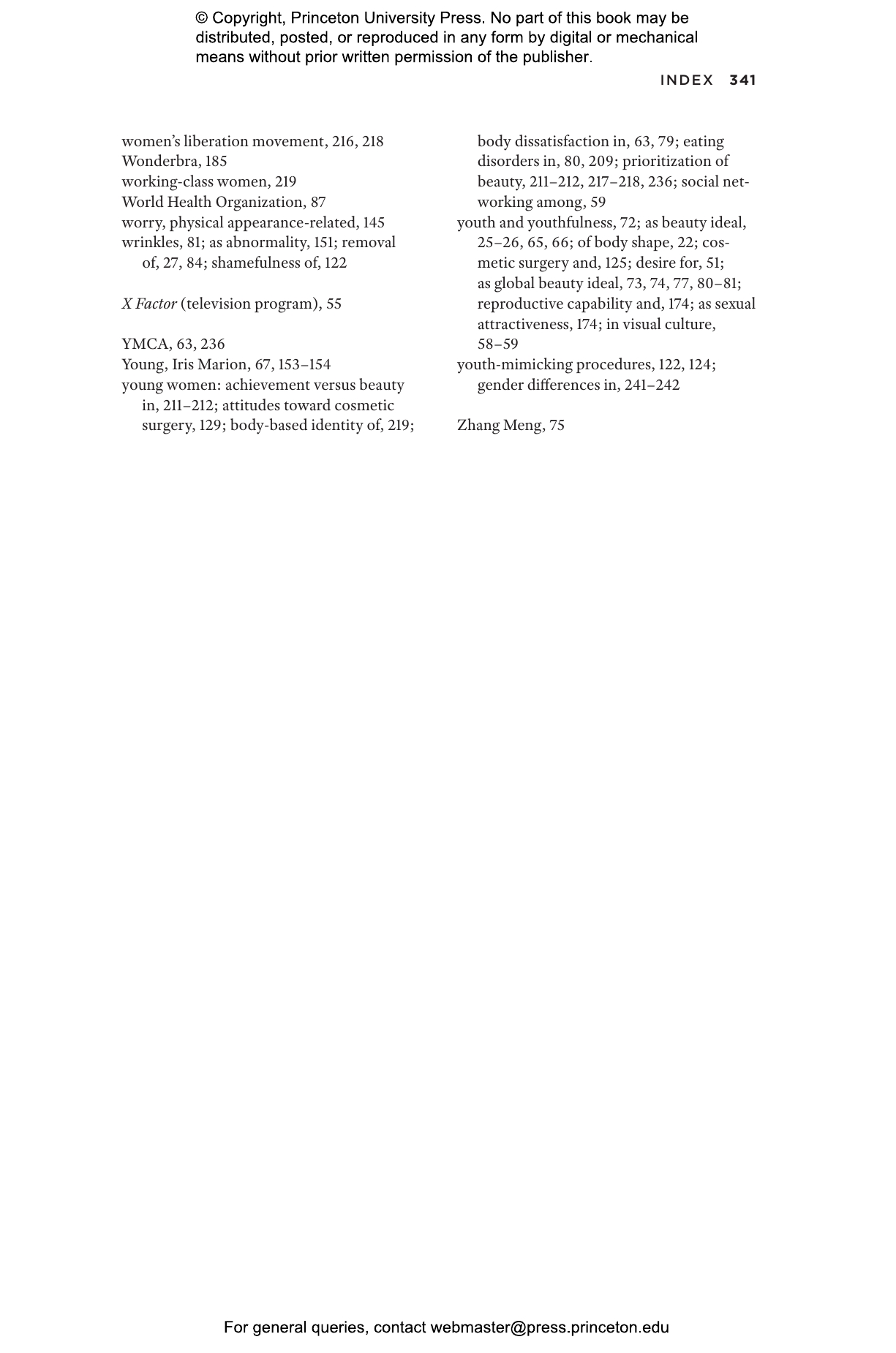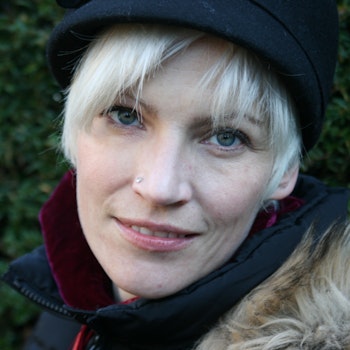The demand to be beautiful is increasingly important in today’s visual and virtual culture. Rightly or wrongly, being perfect has become an ethical ideal to live by, and according to which we judge ourselves good or bad, a success or a failure. Perfect Me explores the changing nature of the beauty ideal, showing how it is more dominant, more demanding, and more global than ever before.
Heather Widdows argues that our perception of the self is changing. More and more, we locate the self in the body—not just our actual, flawed bodies but our transforming and imagined ones. As this happens, we further embrace the beauty ideal. Nobody is firm enough, thin enough, smooth enough, or buff enough—not without significant effort and cosmetic intervention. And as more demanding practices become the norm, more will be required of us, and the beauty ideal will be harder and harder to resist.
If you have ever felt the urge to “make the best of yourself” or worried that you were “letting yourself go,” this book explains why. Perfect Me examines how the beauty ideal has come to define how we see ourselves and others and how we structure our daily practices—and how it enthralls us with promises of the good life that are dubious at best. Perfect Me demonstrates that we must first recognize the ethical nature of the beauty ideal if we are ever to address its harms.
Awards and Recognition
- One of The Atlantic's Best Books of 2018
"In . . . Perfect Me, Heather Widdows, a philosophy professor at the University of Birmingham, England, convincingly argues that the pressures on women to appear thinner, younger and firmer are stronger than ever."—Amanda Hess, New York Times
"In 1990 . . . Naomi Wolf published The Beauty Myth, her examination—and her indictment—of the way attractiveness functions as both a metaphor for and a mandate over women’s lives. The book now has a sequel, of sorts . . . Perfect Me: Beauty as an Ethical Ideal . . . [is] a scholarly work that is urgently relevant to the current cultural moment."—Meagan Garber, The Atlantic
"Perfect Me, a buzzed-about new book by Heather Widdows, argues women face unprecedented pressure to appear thinner, younger and firmer."—Anne Kingston, Maclean's
"Heather Widdows, in Perfect Me, considers the far-ranging implications of attractiveness rendered in the imperative, giving beauty itself, in the process, the rigorously intellectual treatment it deserves. The book, an academic title with mass-market implications, considers beauty as a construction, racialized and gendered; beauty as a constriction, often punishing and occasionally cruel; and beauty as a goal that remains, for most, persistently out of reach. Perfect Me is a treatise that often reads, fittingly, as an indictment—a book that recognizes all the ways people are taught, still, to judge books by their covers."—The Atlantic
"A sharp and accessible read."—Regan Penaluna, Guenrica
"Widdows is at her best in her analysis of liberalism’s uncritical glorification of choice (and therefore responsibility), which fails to consider social contexts and pressures and so allows for victim blaming when women ‘choose’ to comply with beauty standards."—M.A. Betz, Choice Reviews
"Widdows brings much-needed subtlety to current conversations about the moral and social role of physical appearance in our daily lives."—A. W. Eaton, editor of Talk to Her
"This groundbreaking book is an extended reflection on what Widdows argues to be the increasingly demanding norms of feminine beauty. Perfect Me moves forward from both second wave feminist critiques of the ‘fashion-beauty complex’ and third wave feminist insistence on individual empowerment and choice. Widdows acknowledges the pleasures of the beauty ideal but argues that it produces significant communal harms. She proposes reframing these harms as public health concerns, a shift that opens the way for new and more systemic ethical analyses."—Alison M. Jaggar, University of Colorado at Boulder
"Innovative and original."—Anne Phillips, author of The Politics of the Human
"Widdows brings much-needed subtly to current conversations about the moral and social role of physical appearance in our daily lives."—A. W. Eaton, editor of Talk to Her
